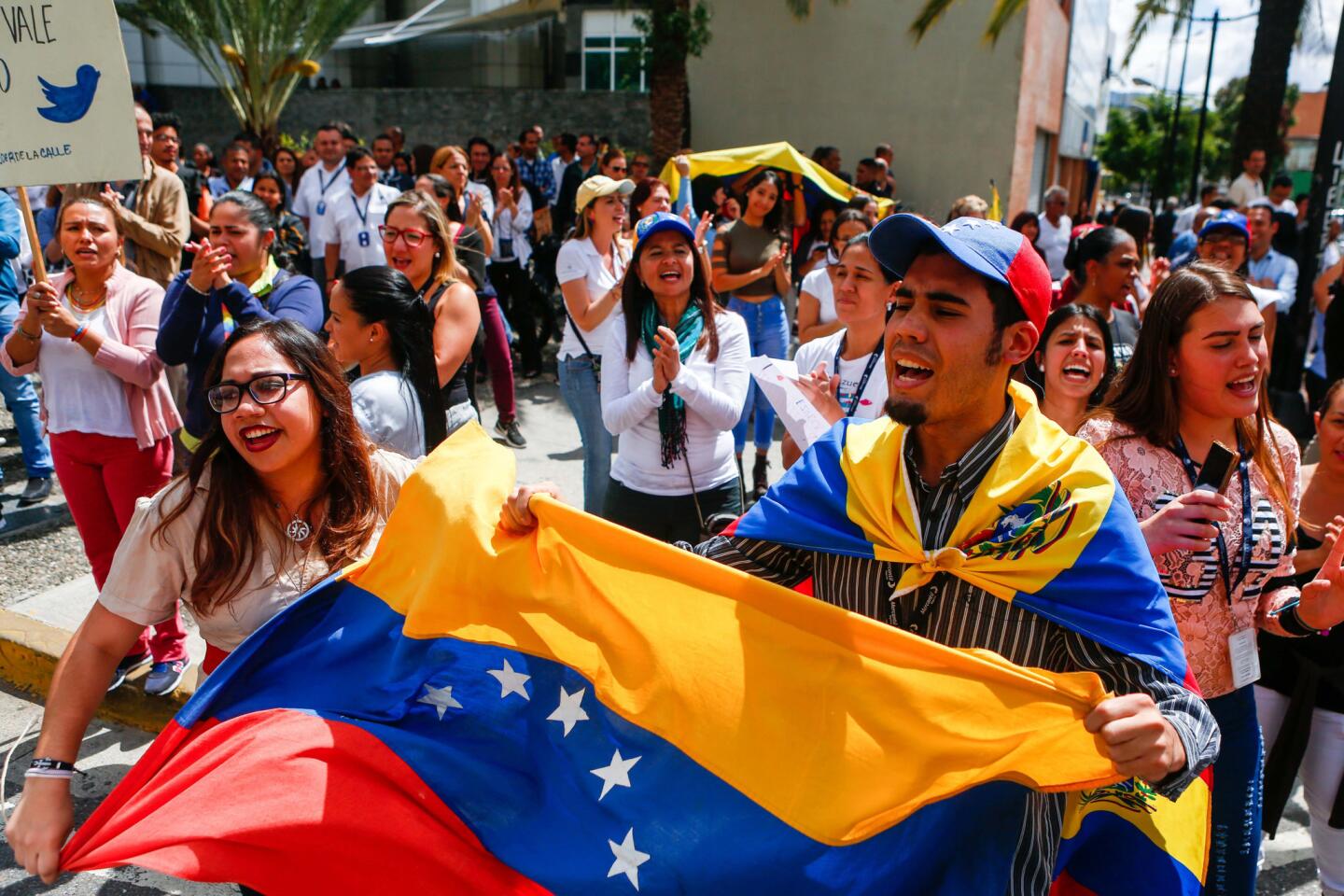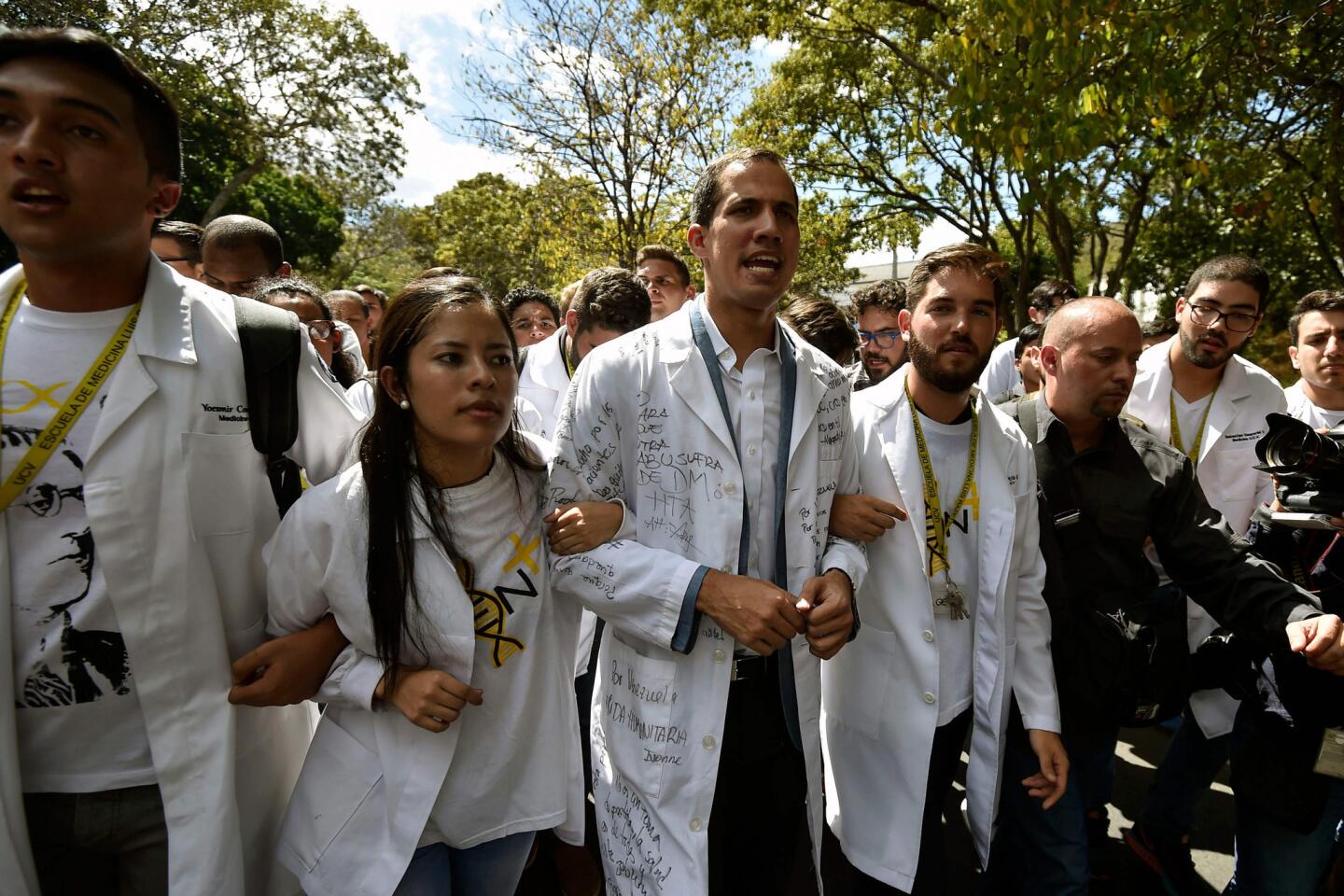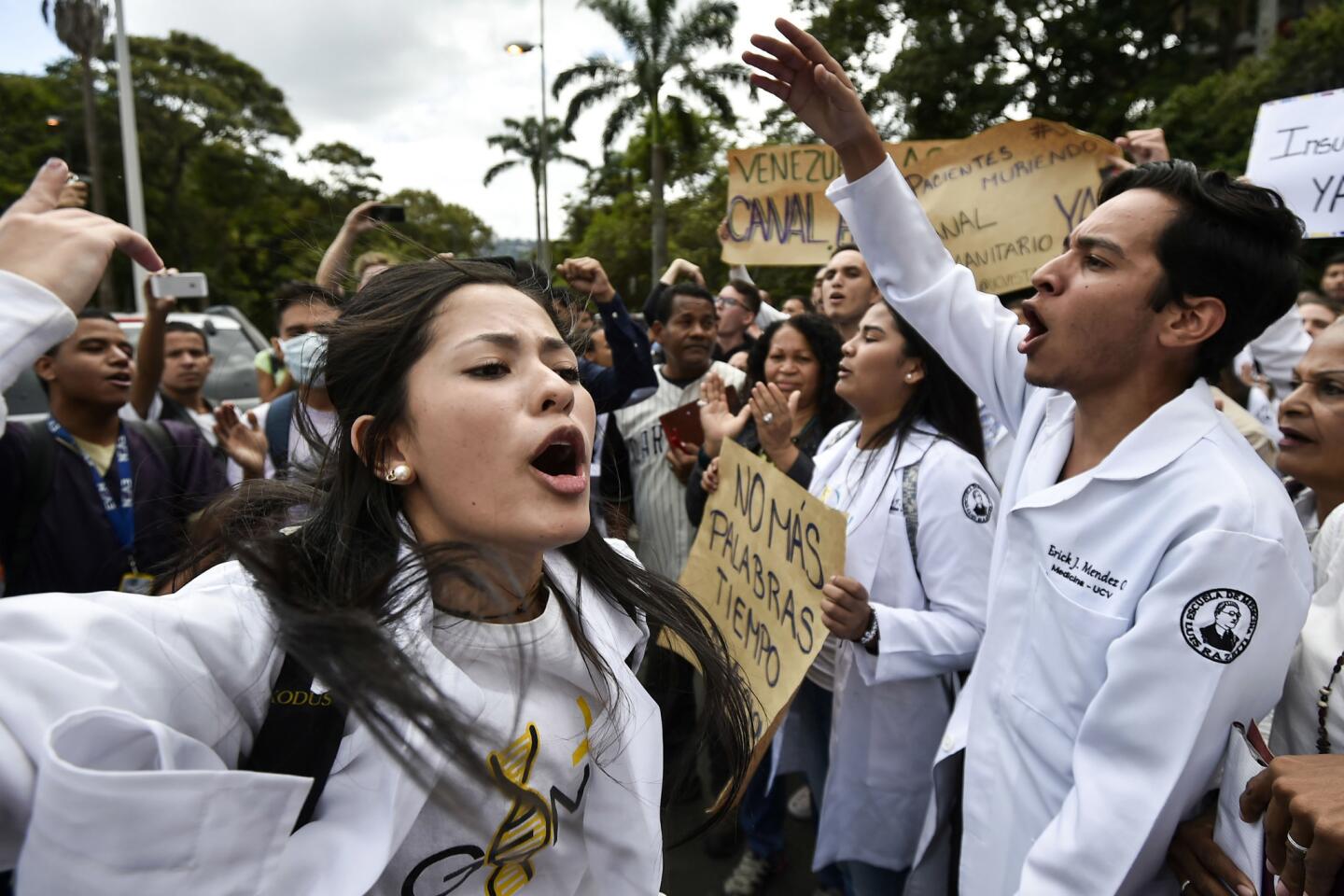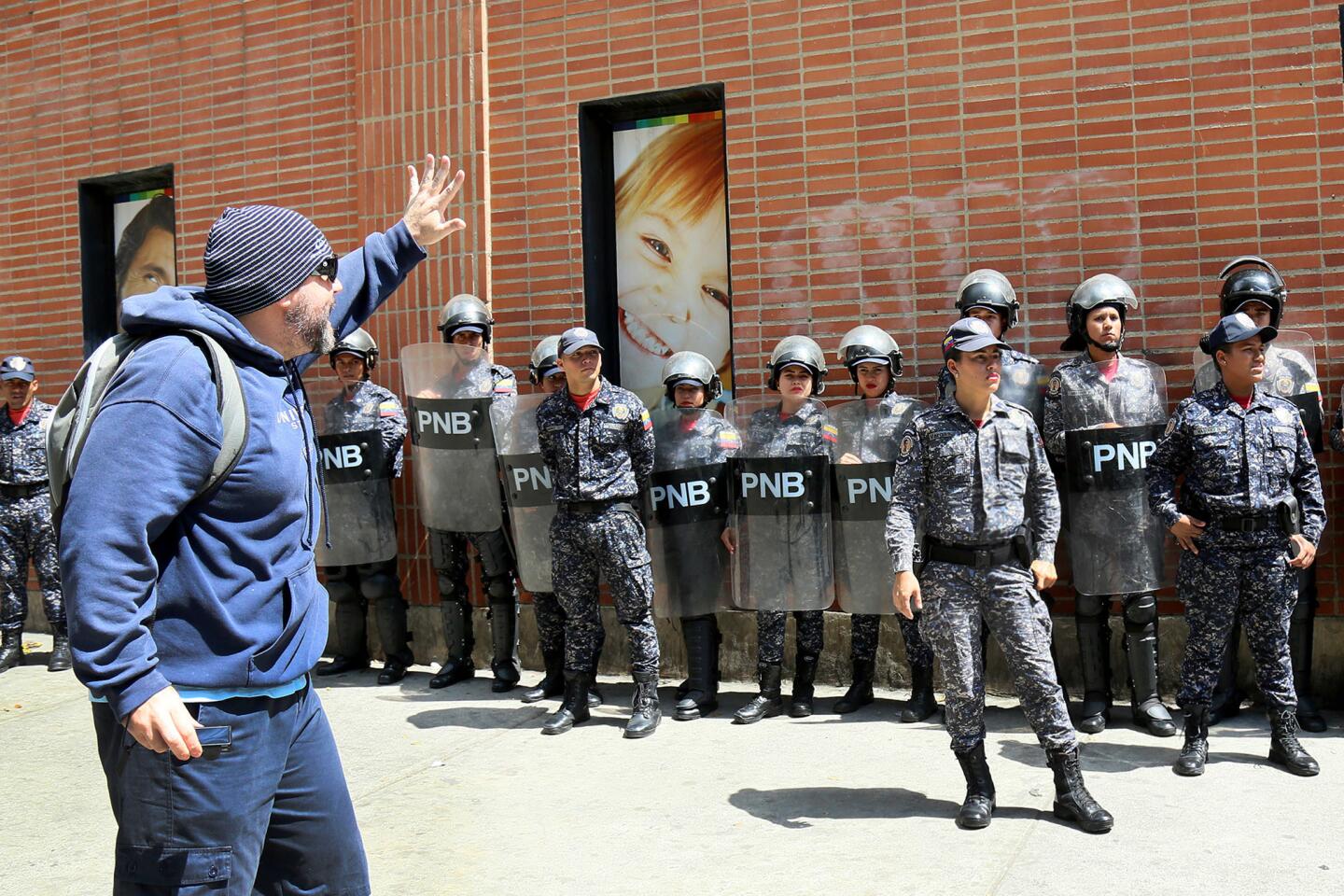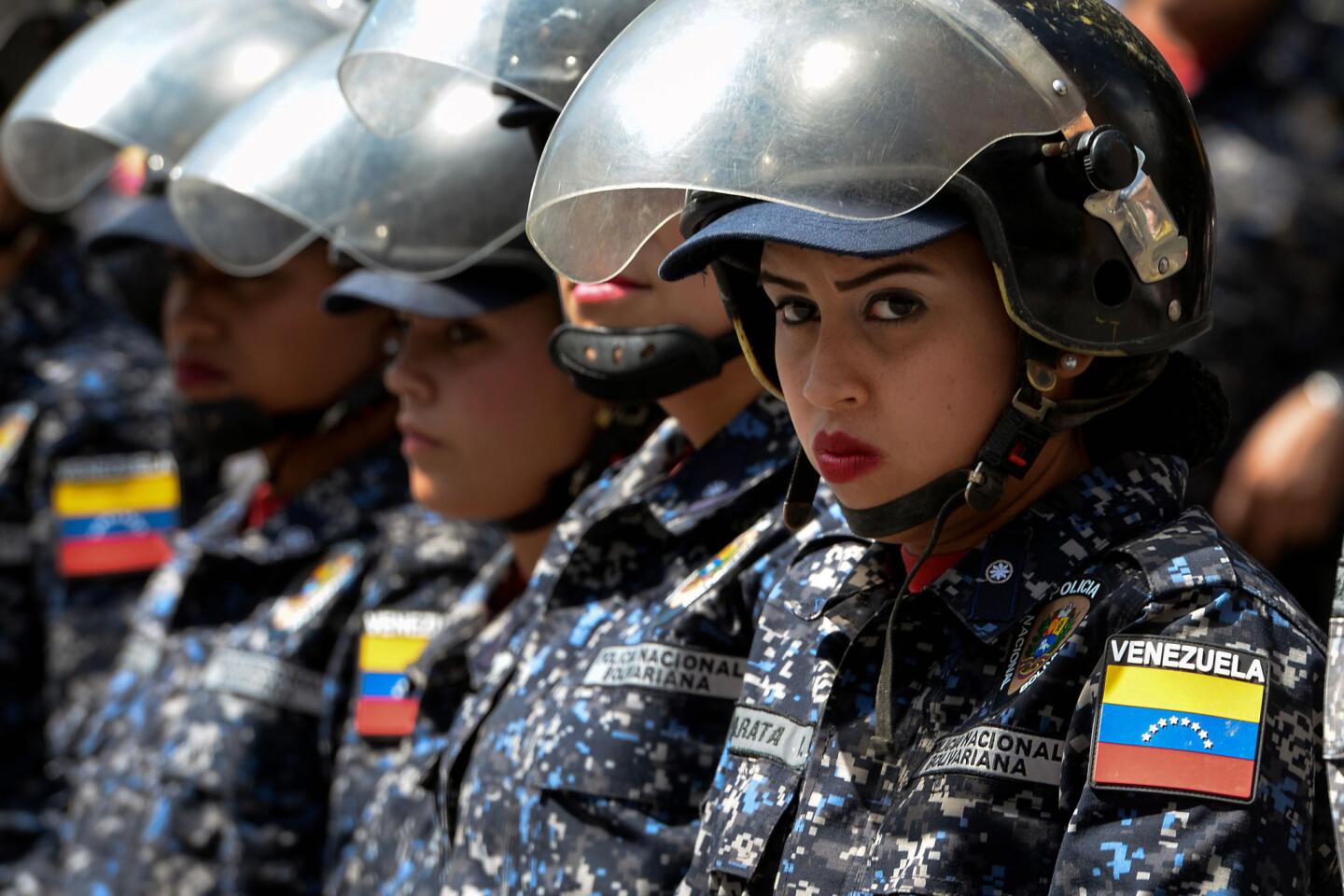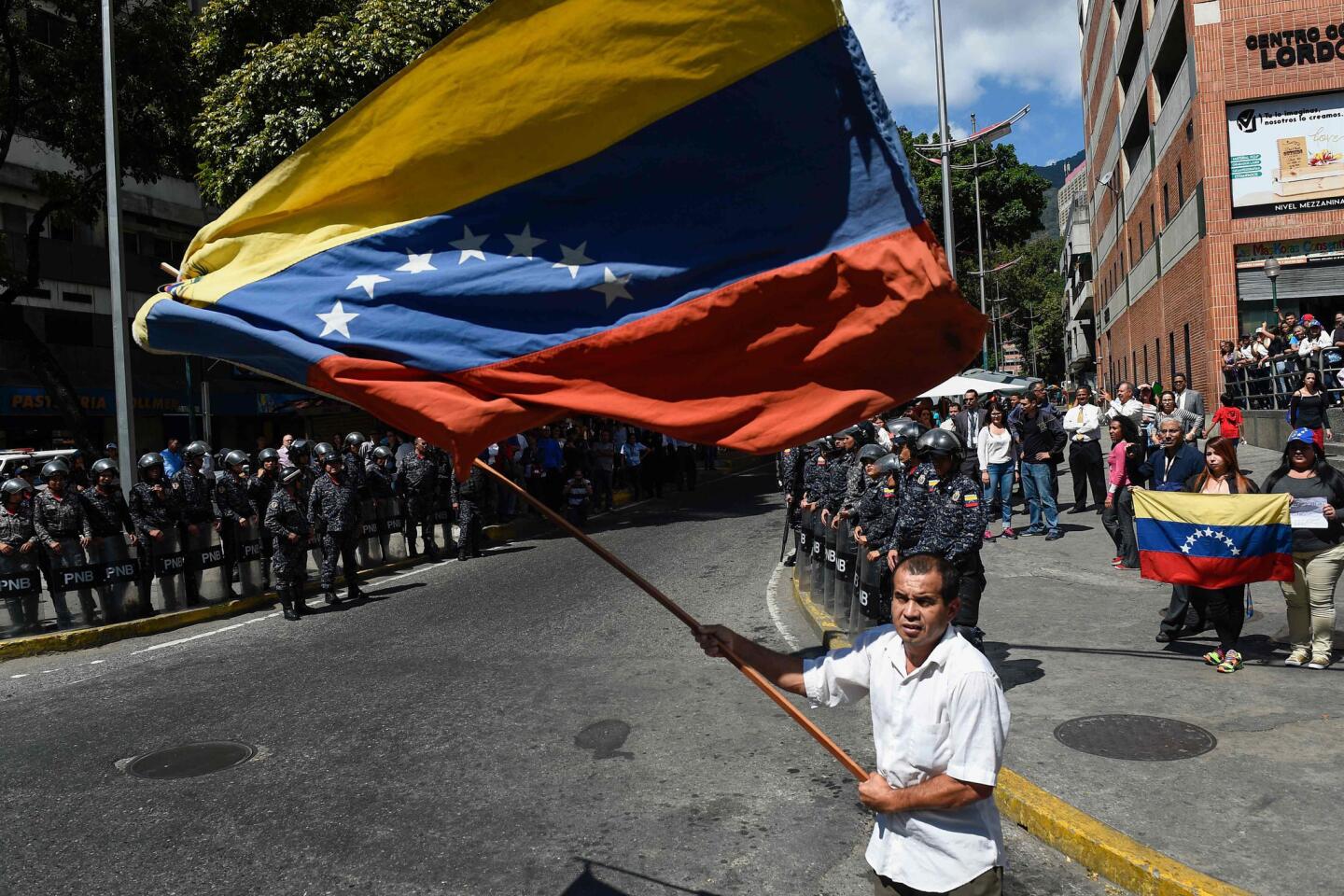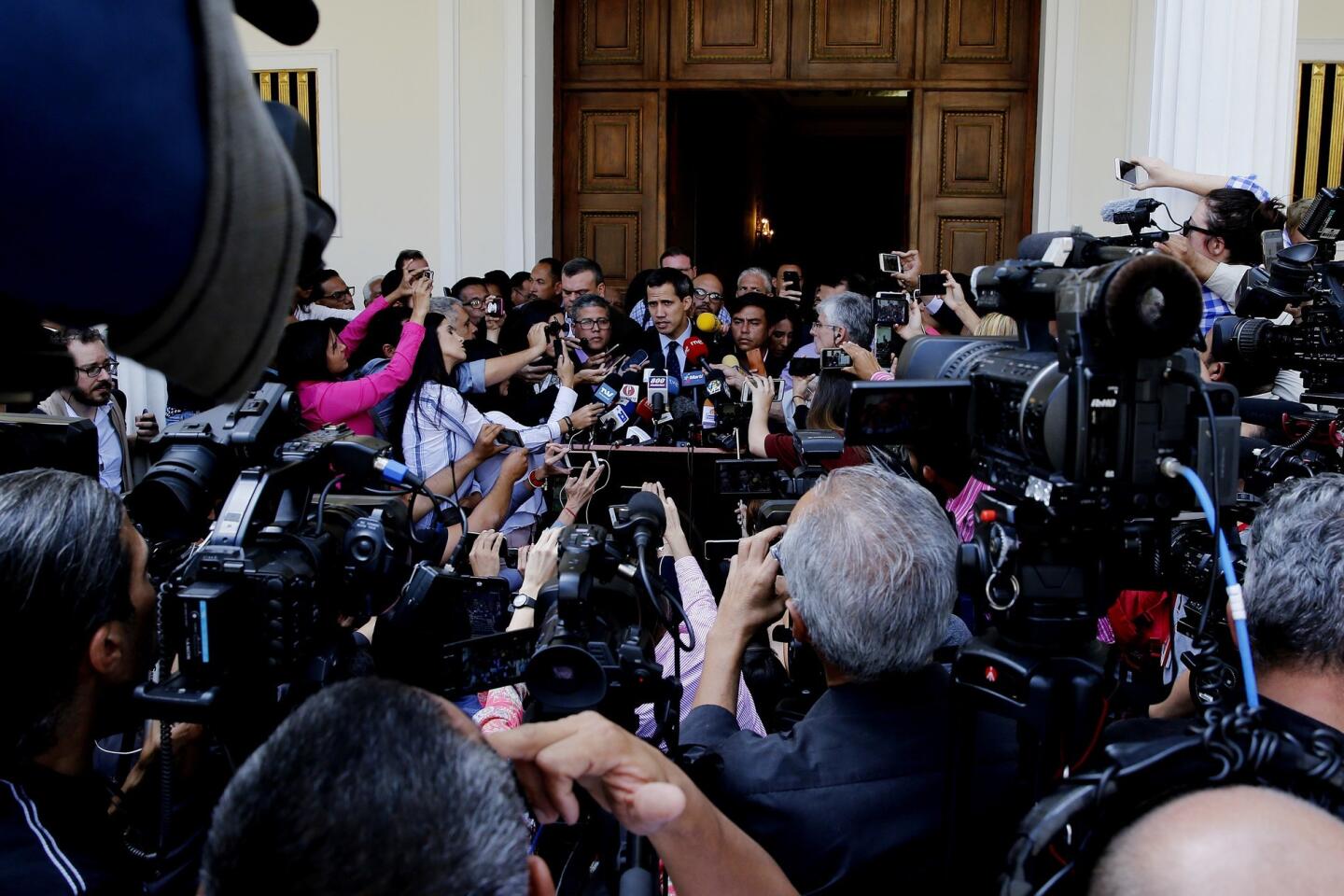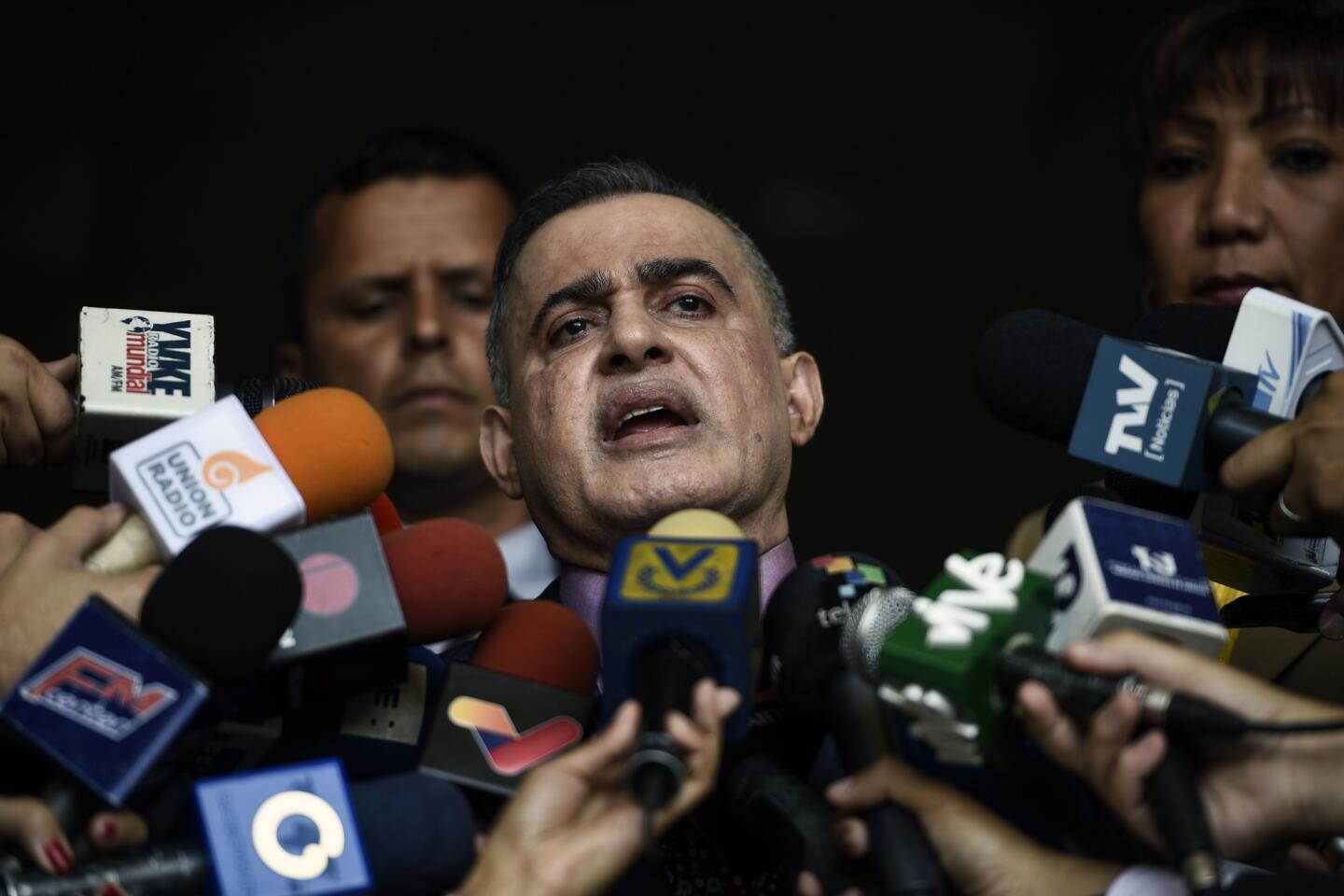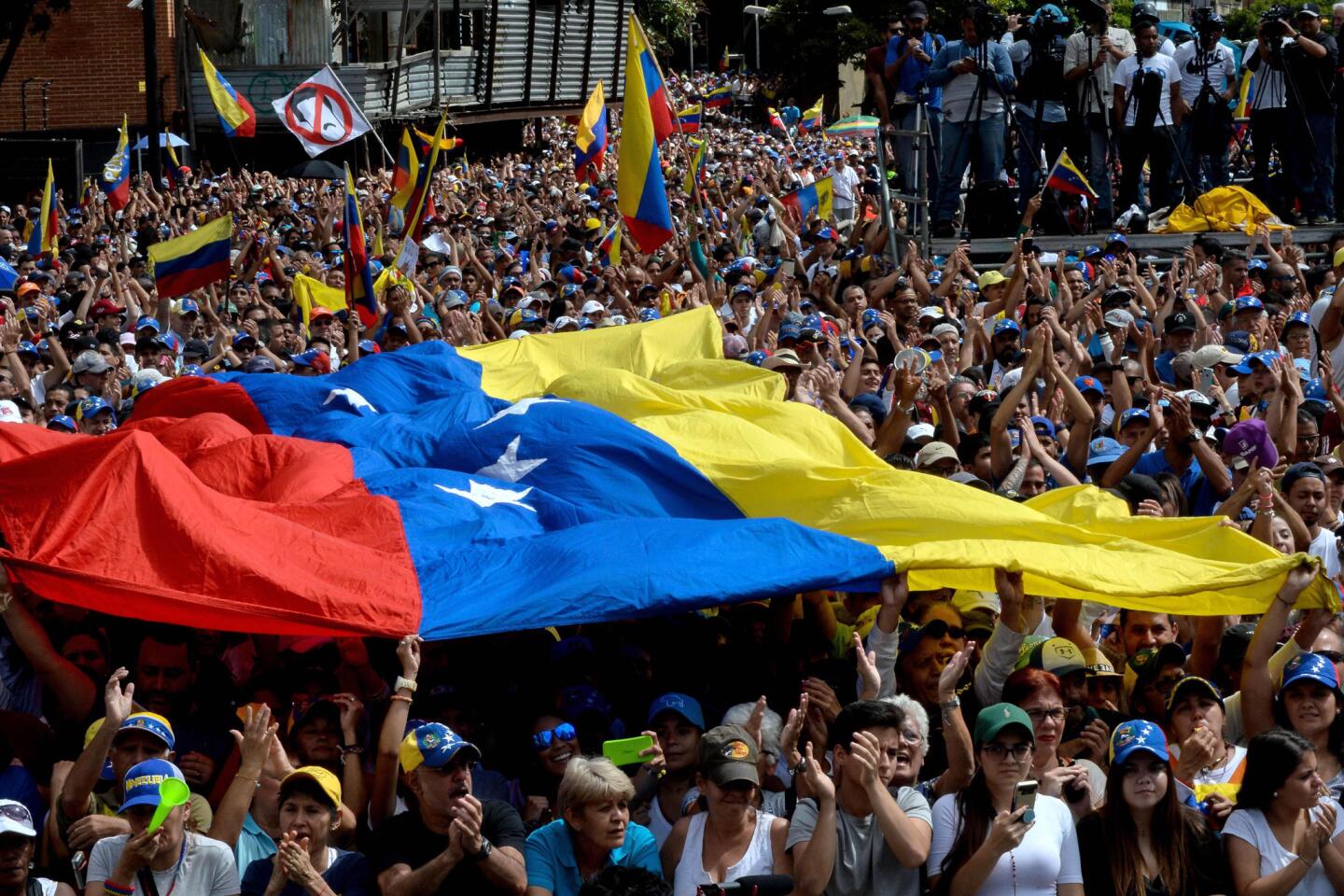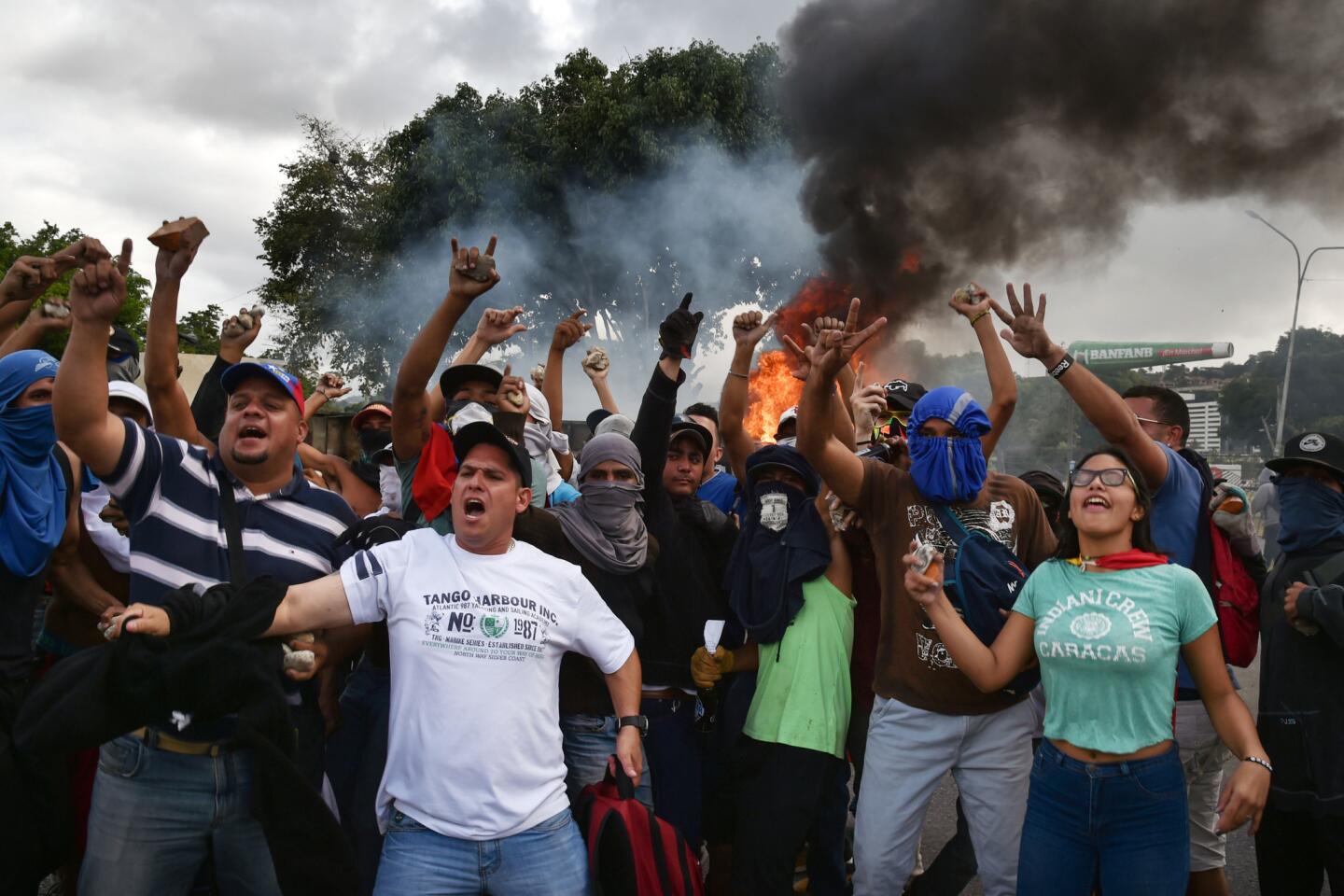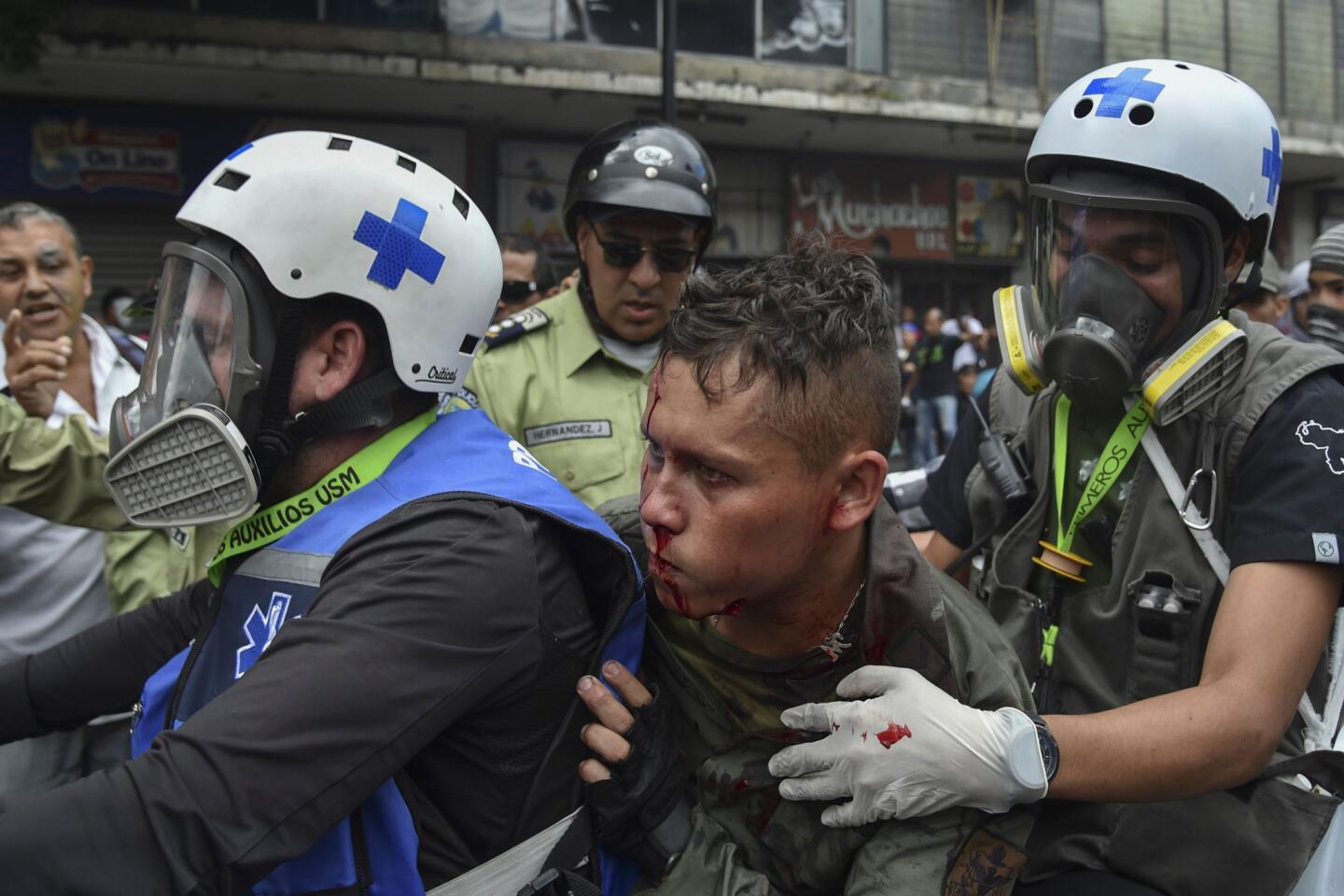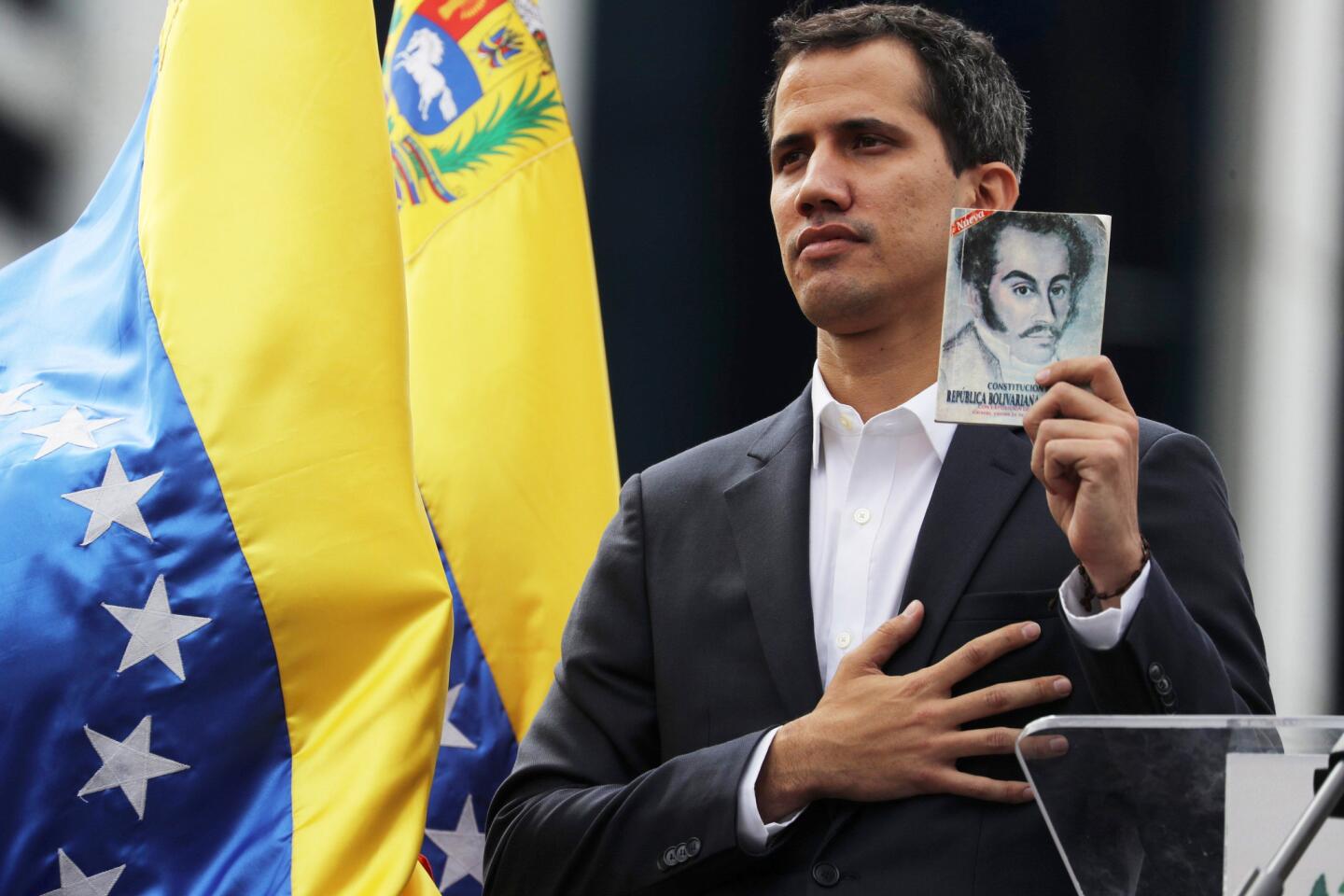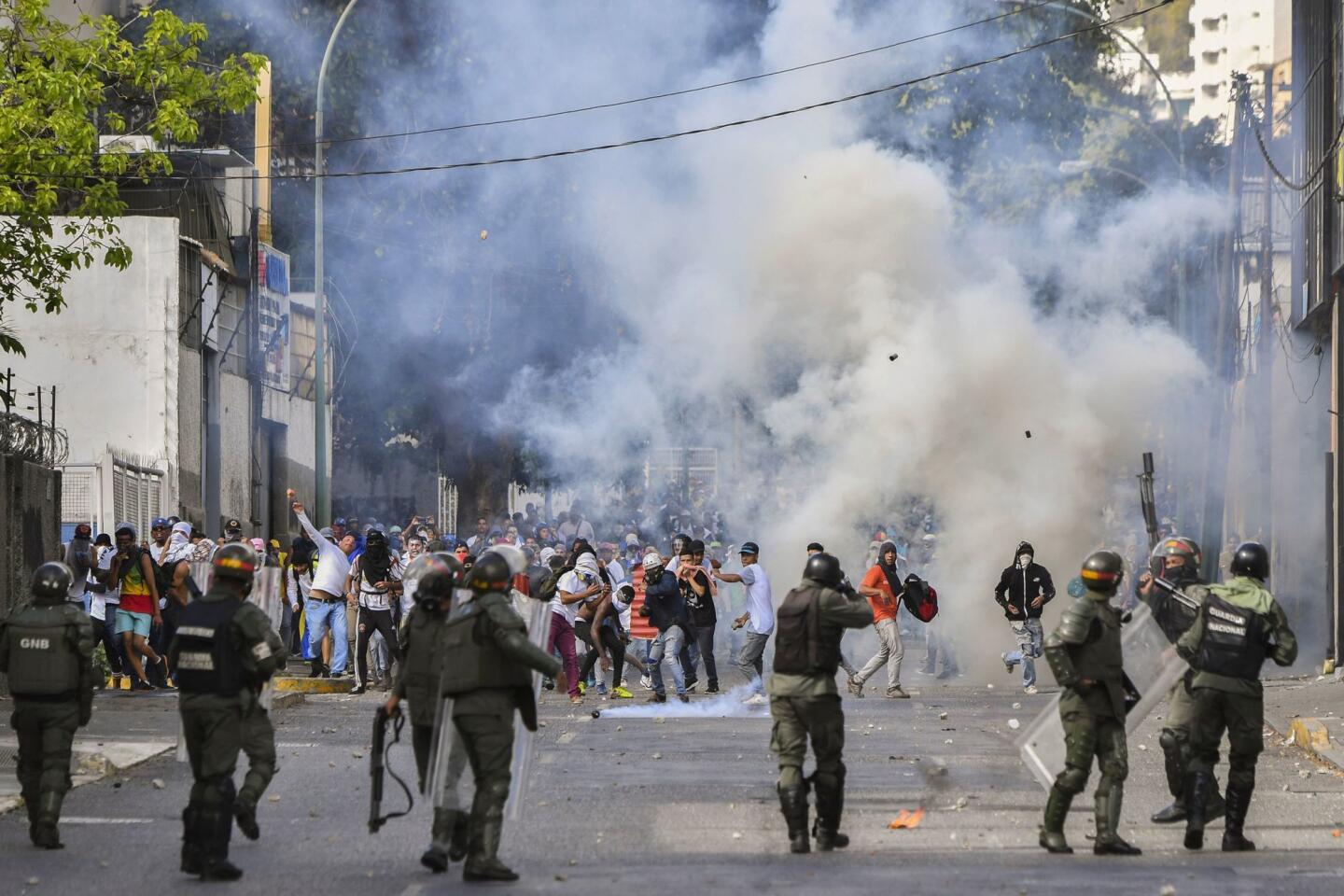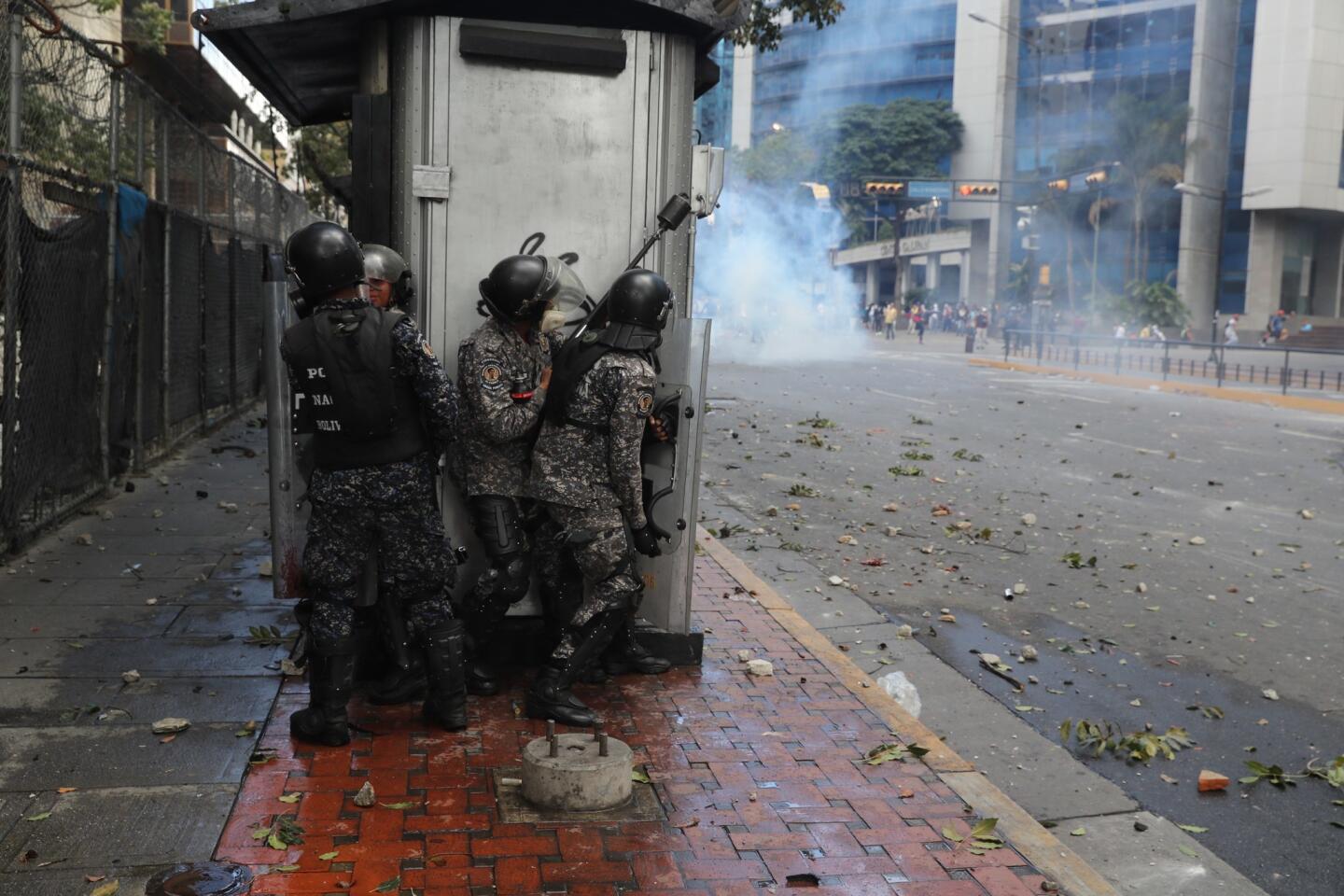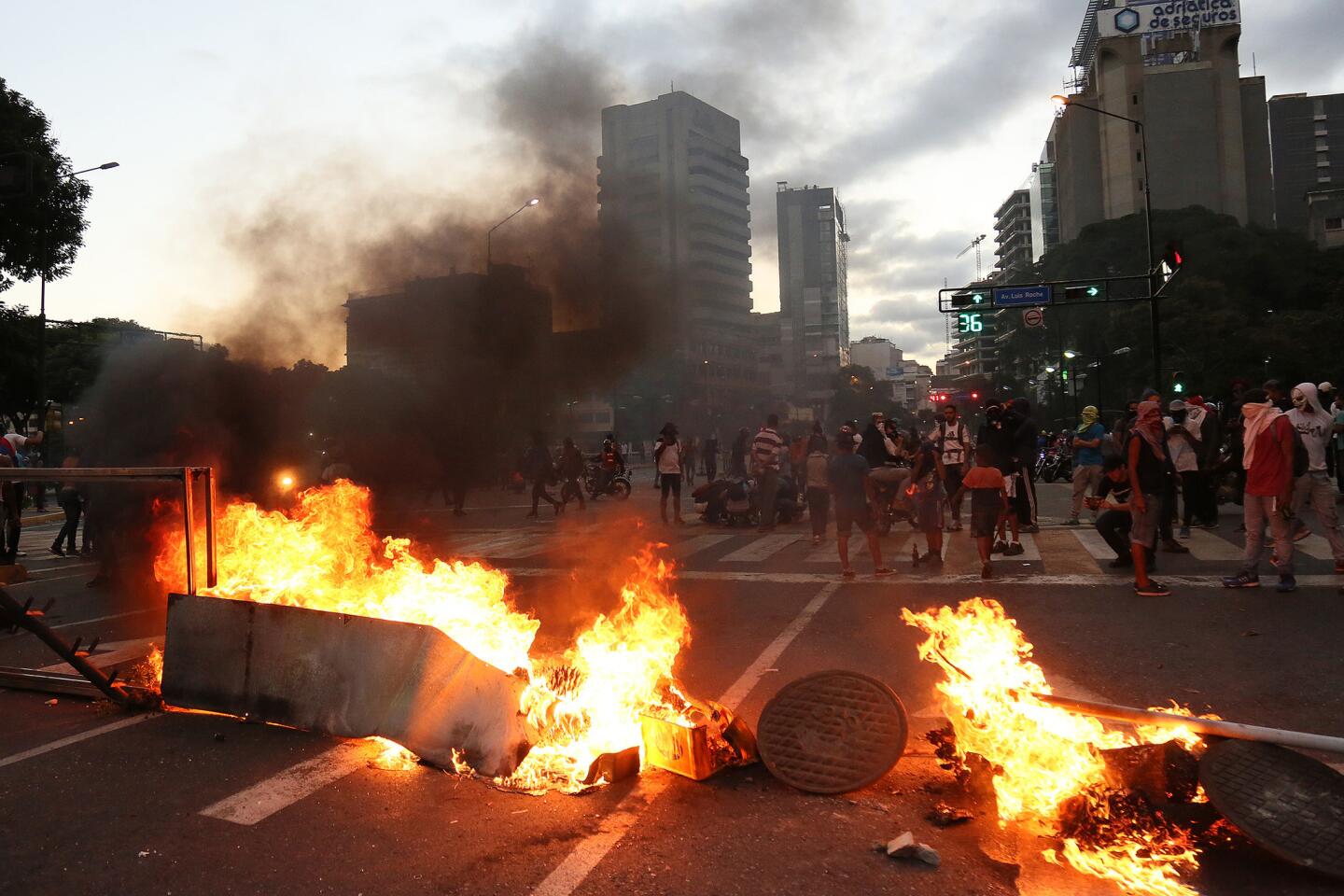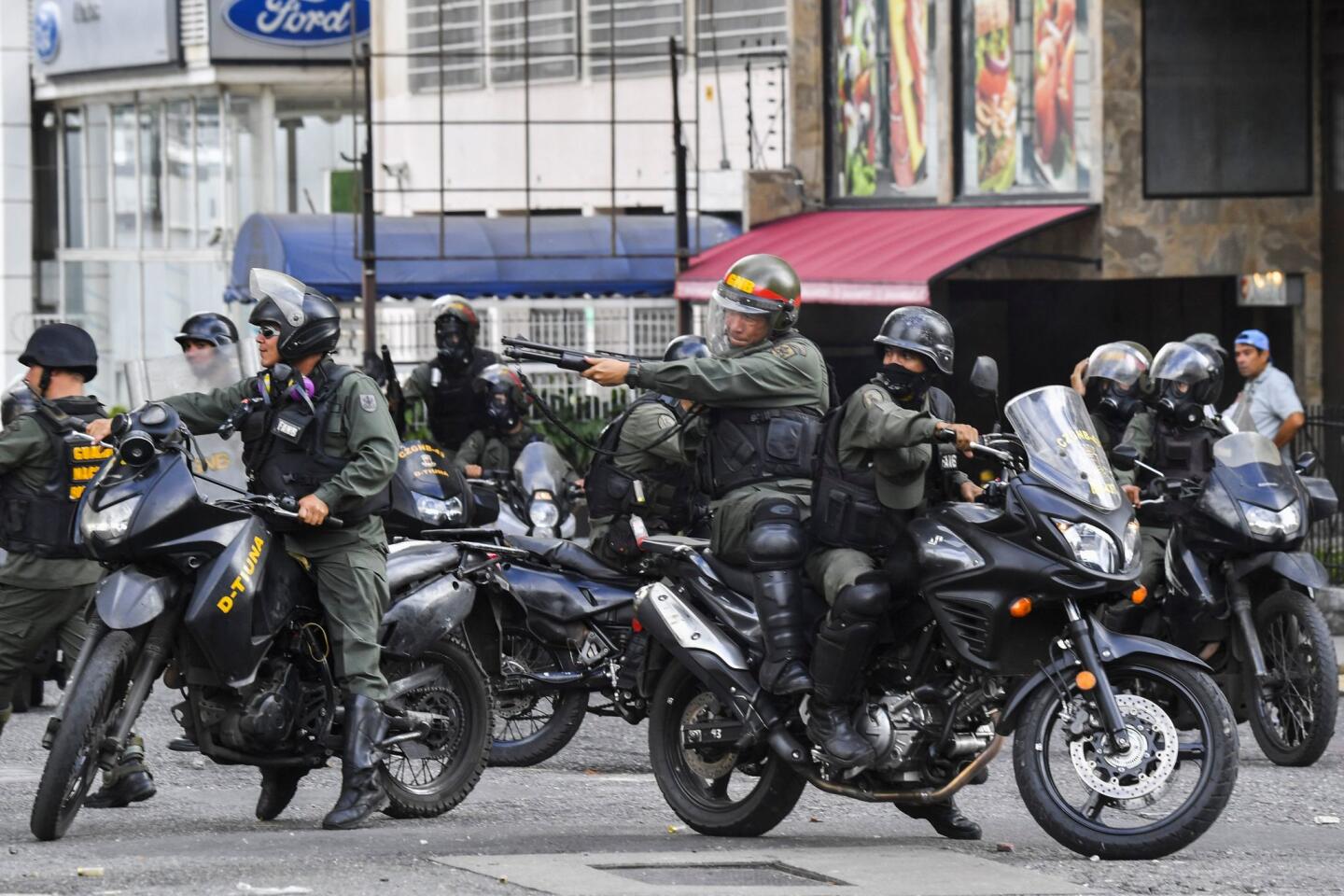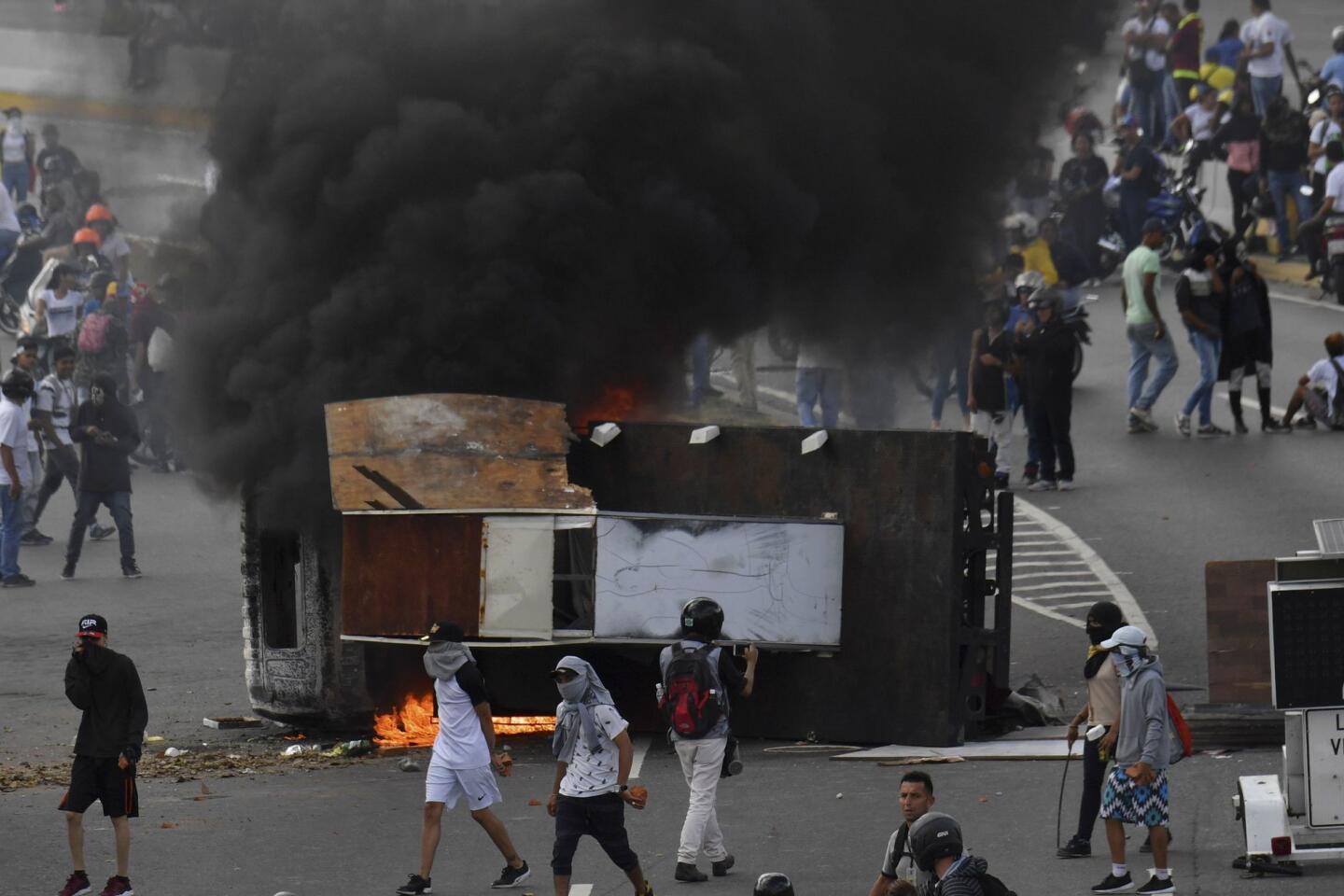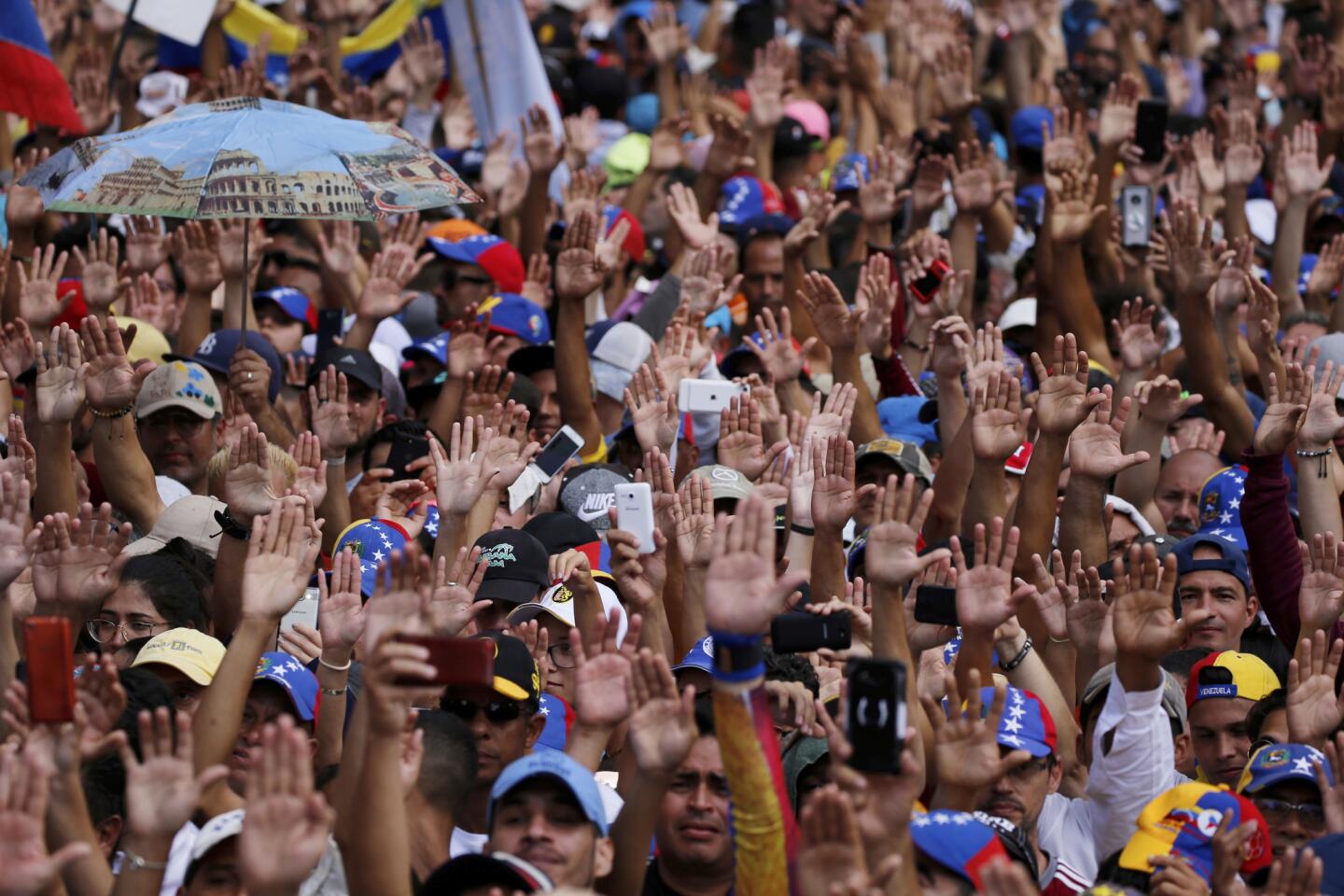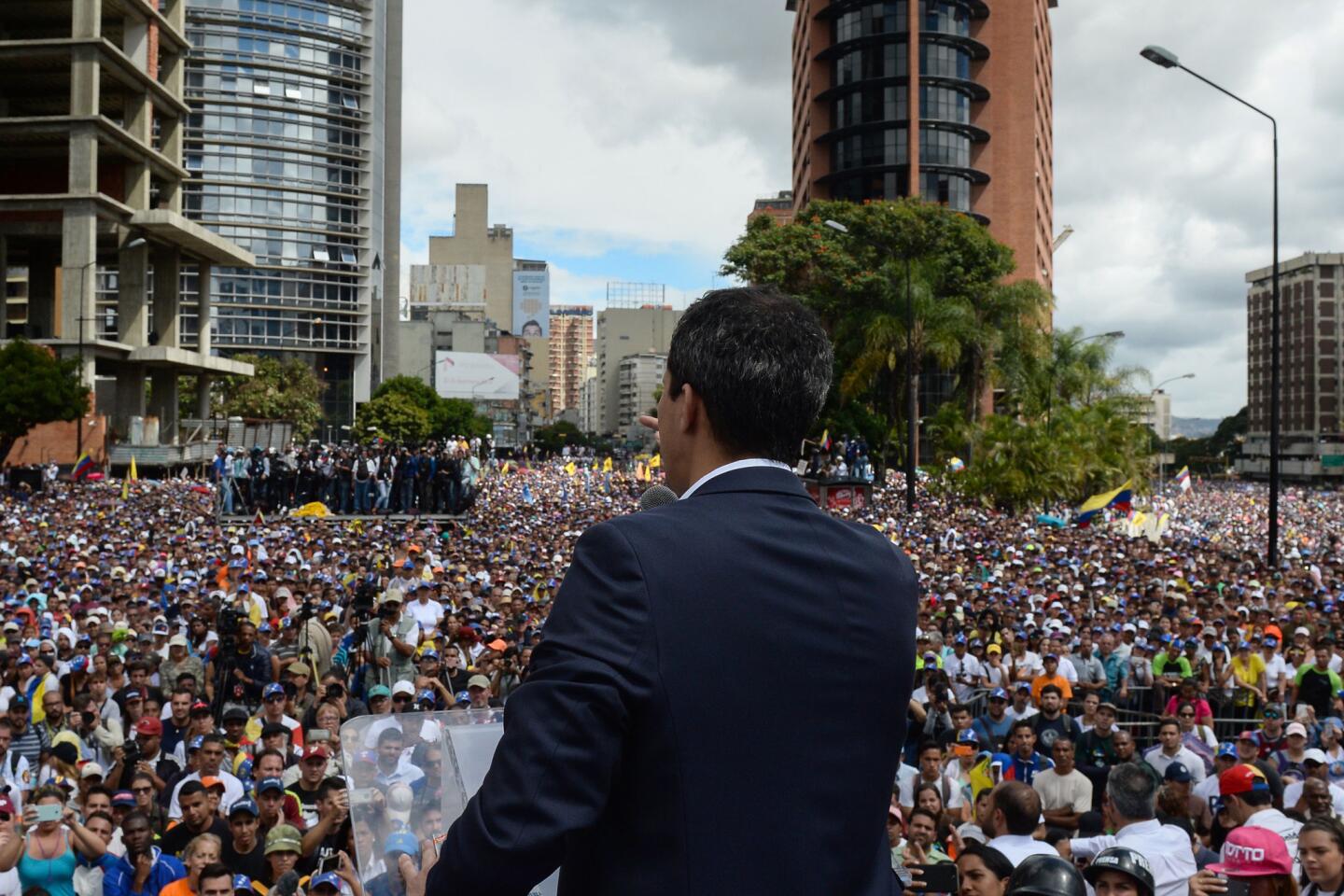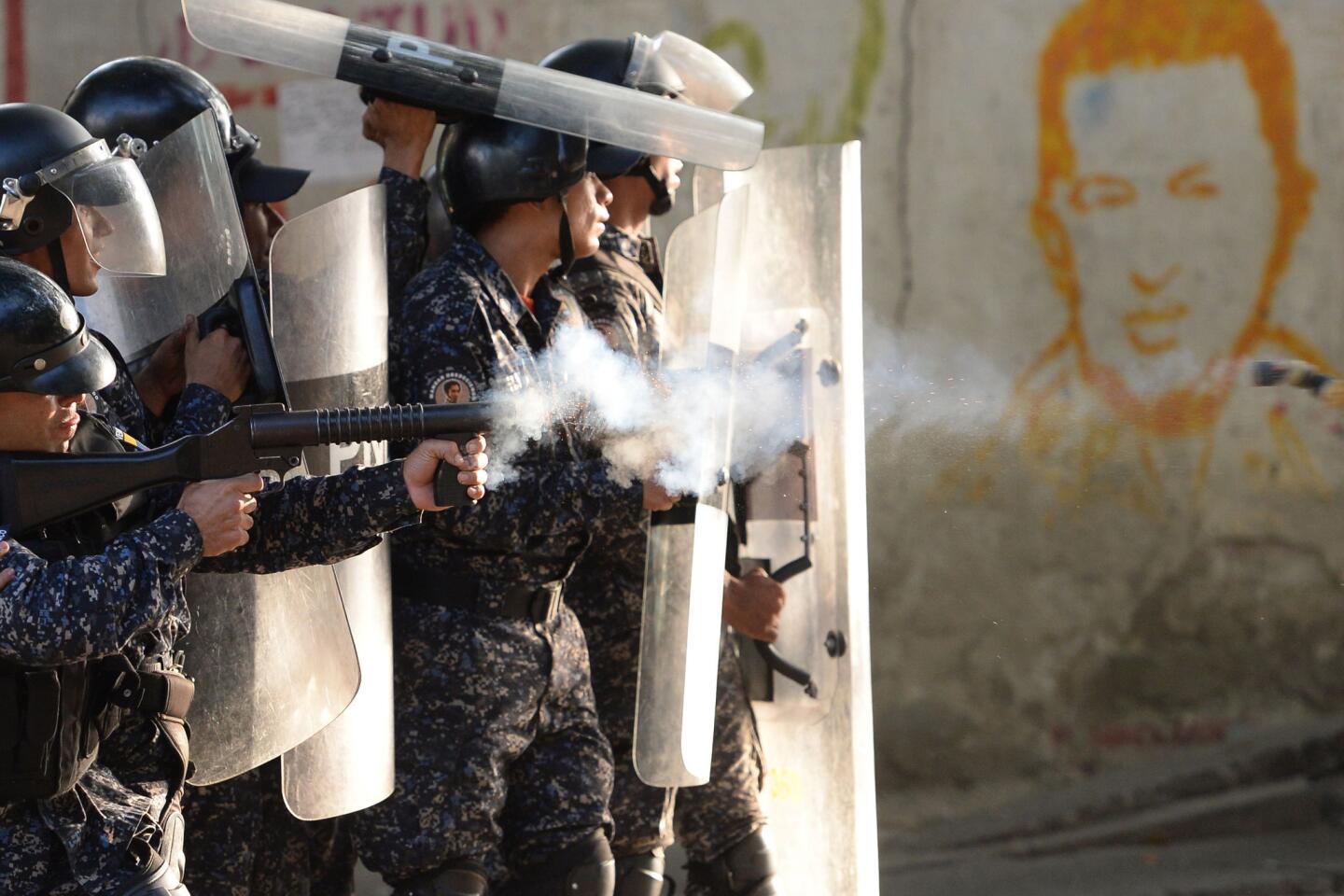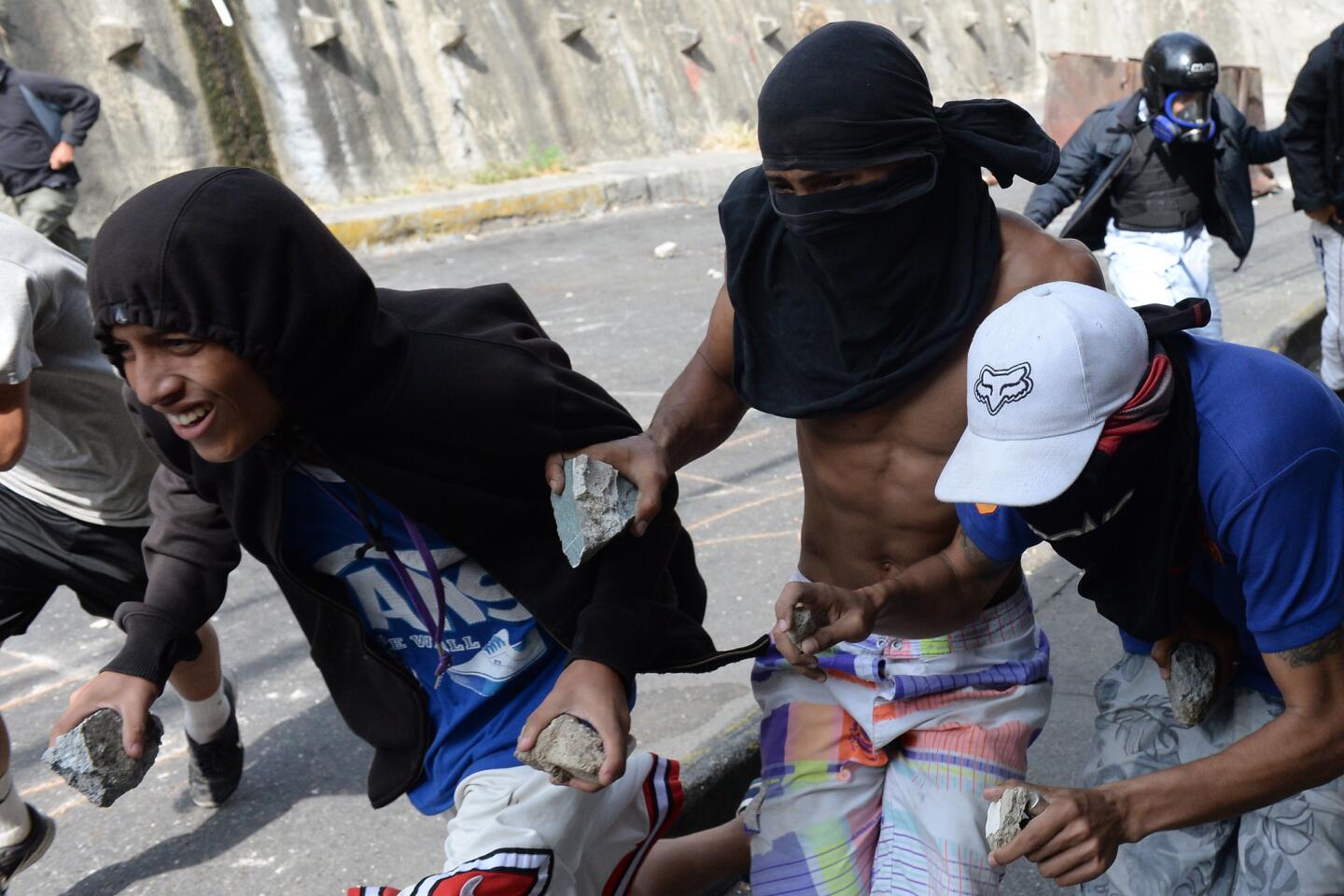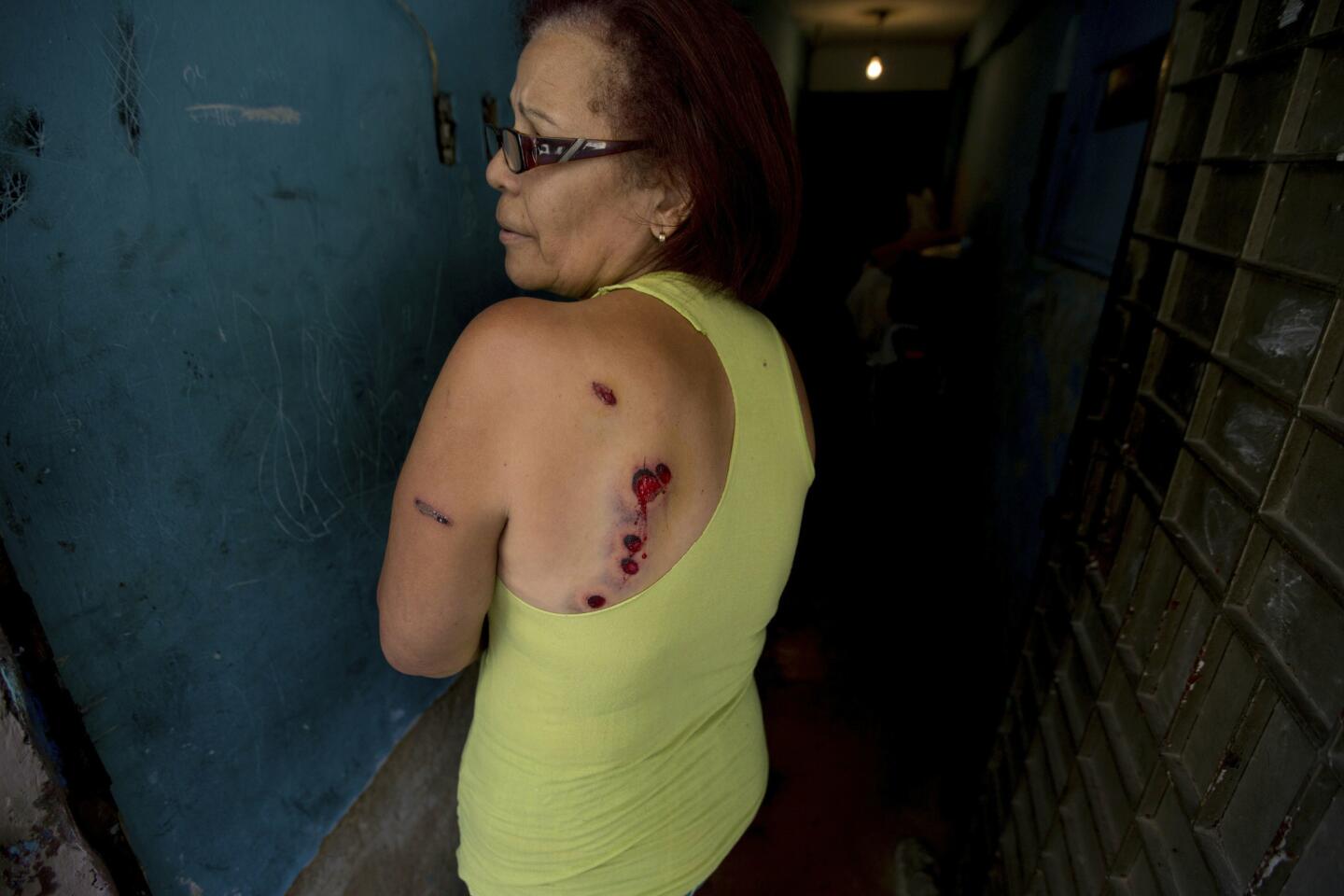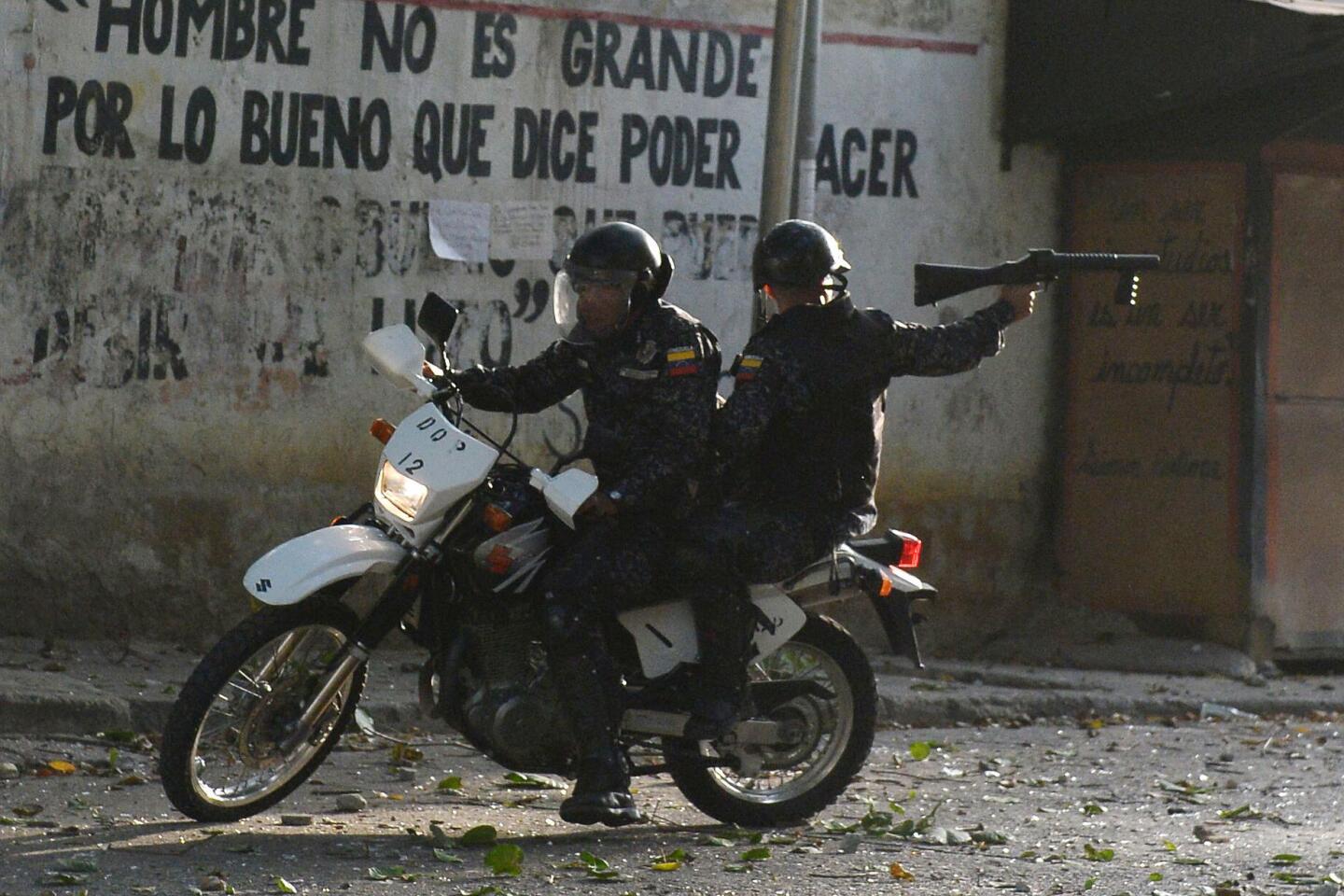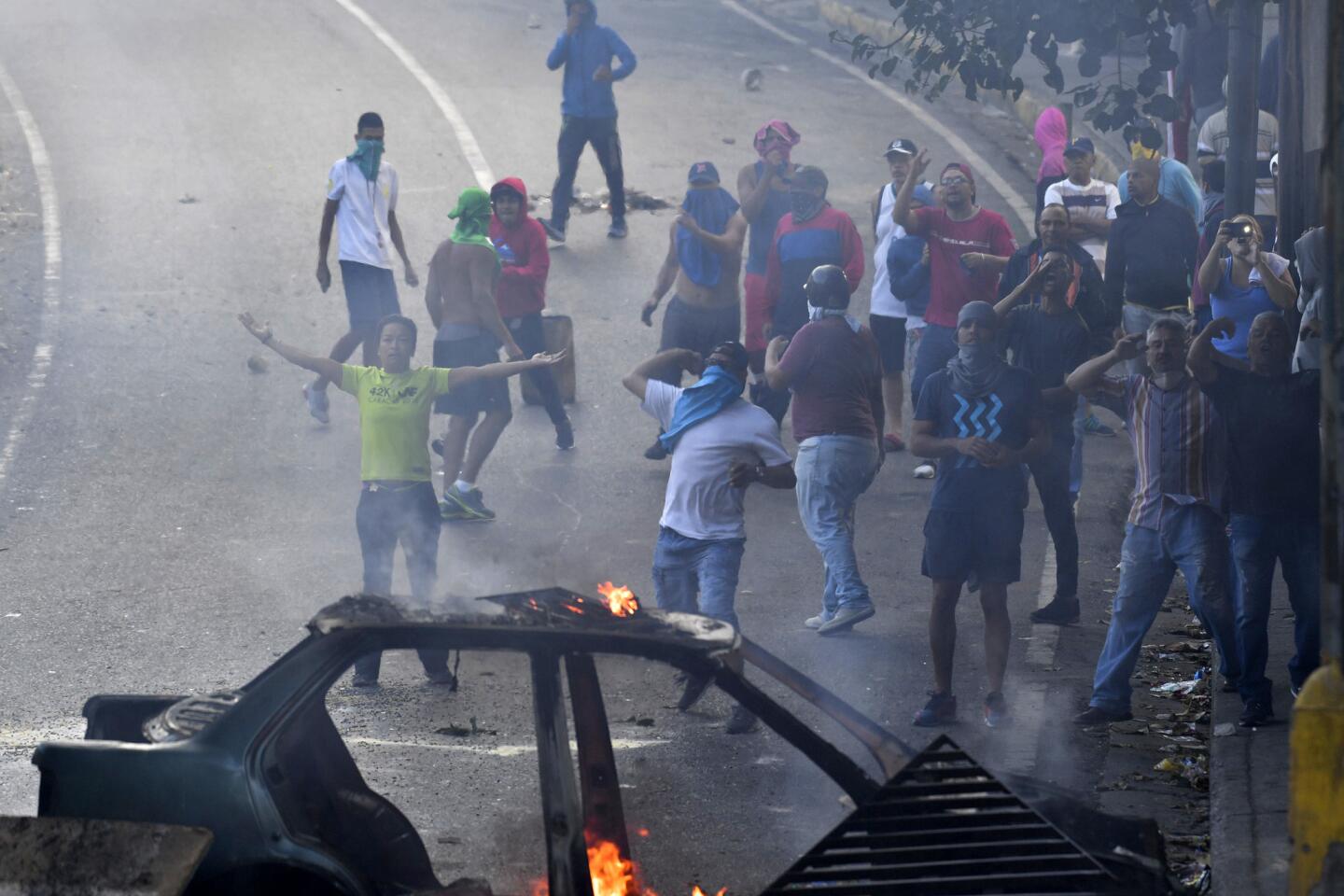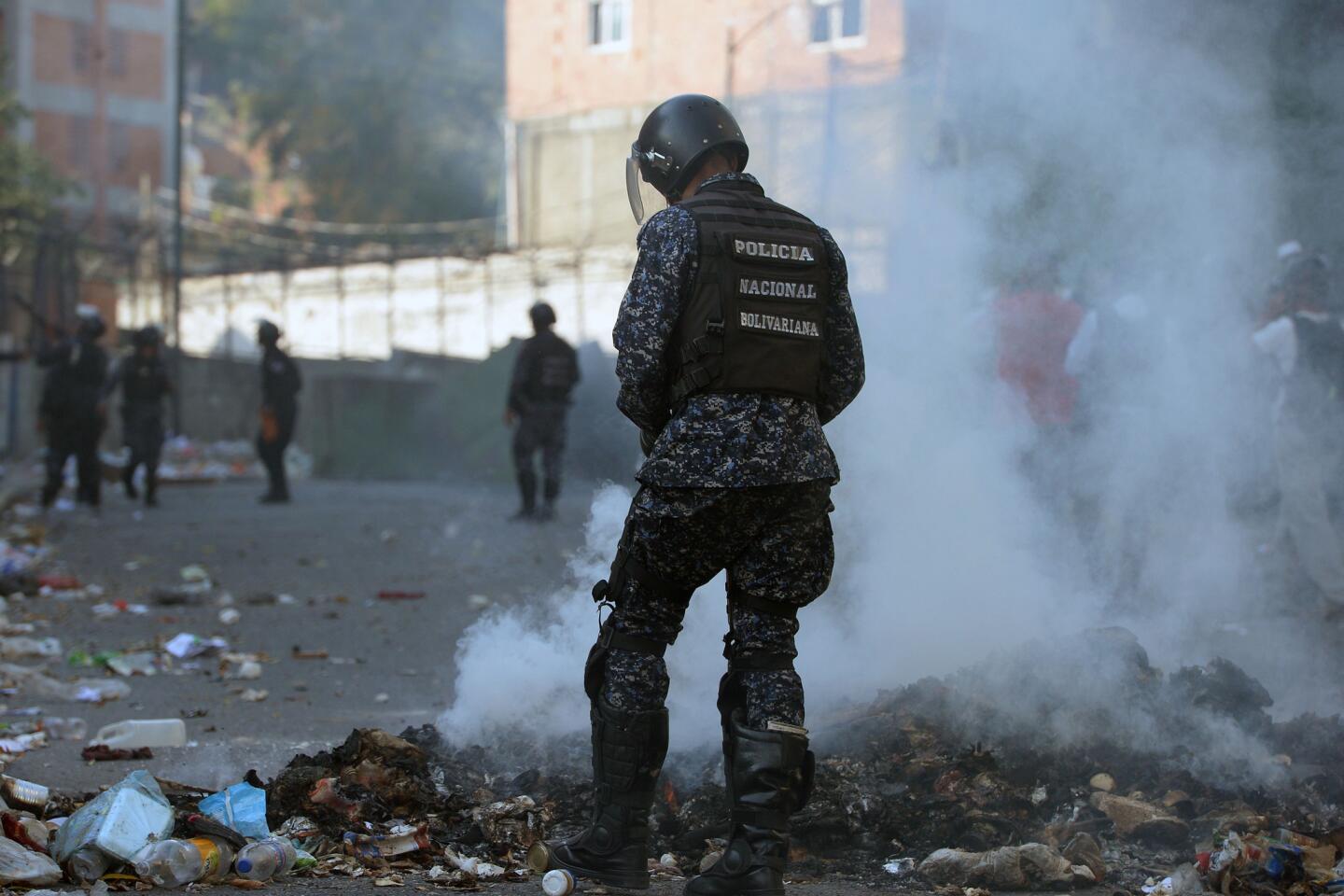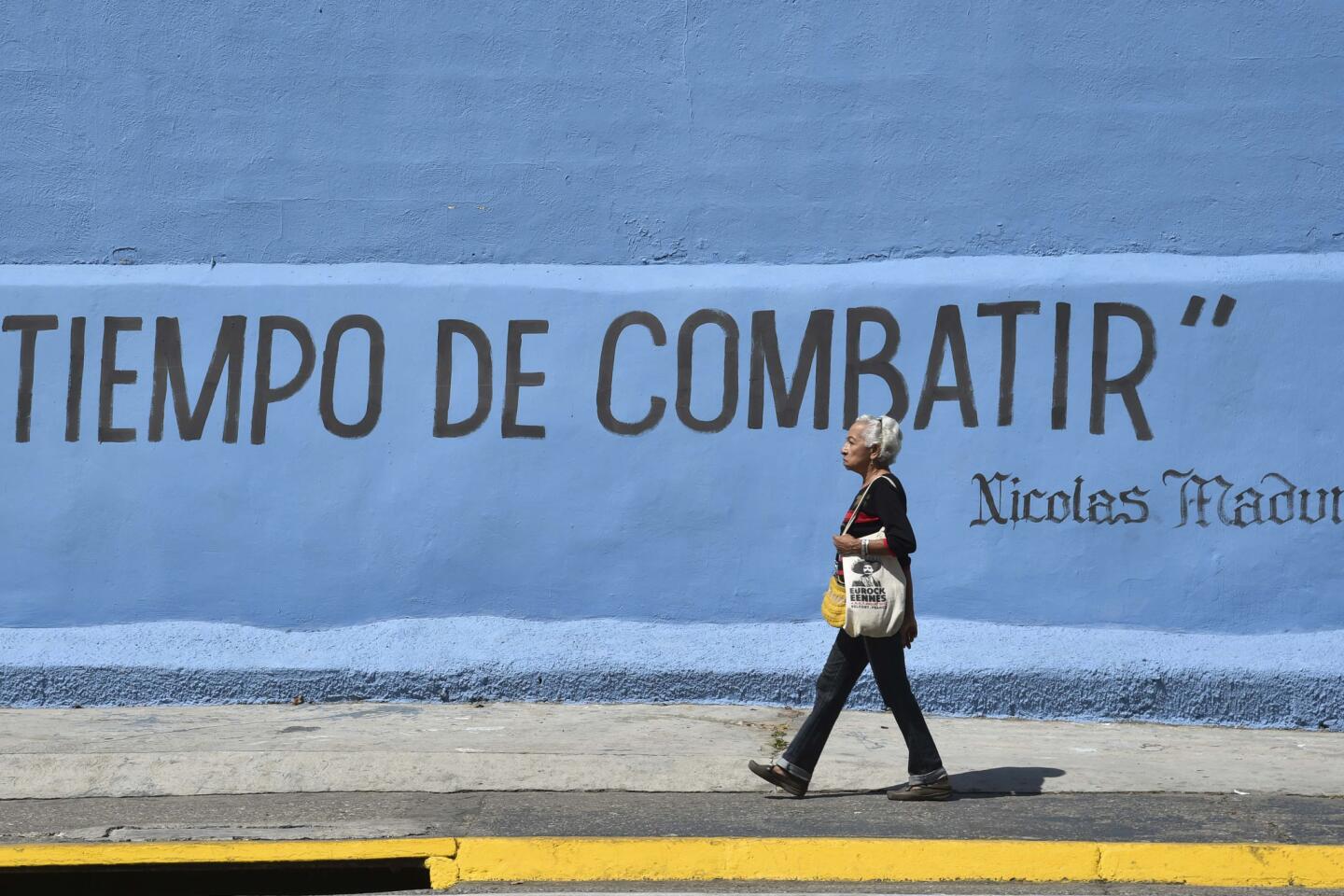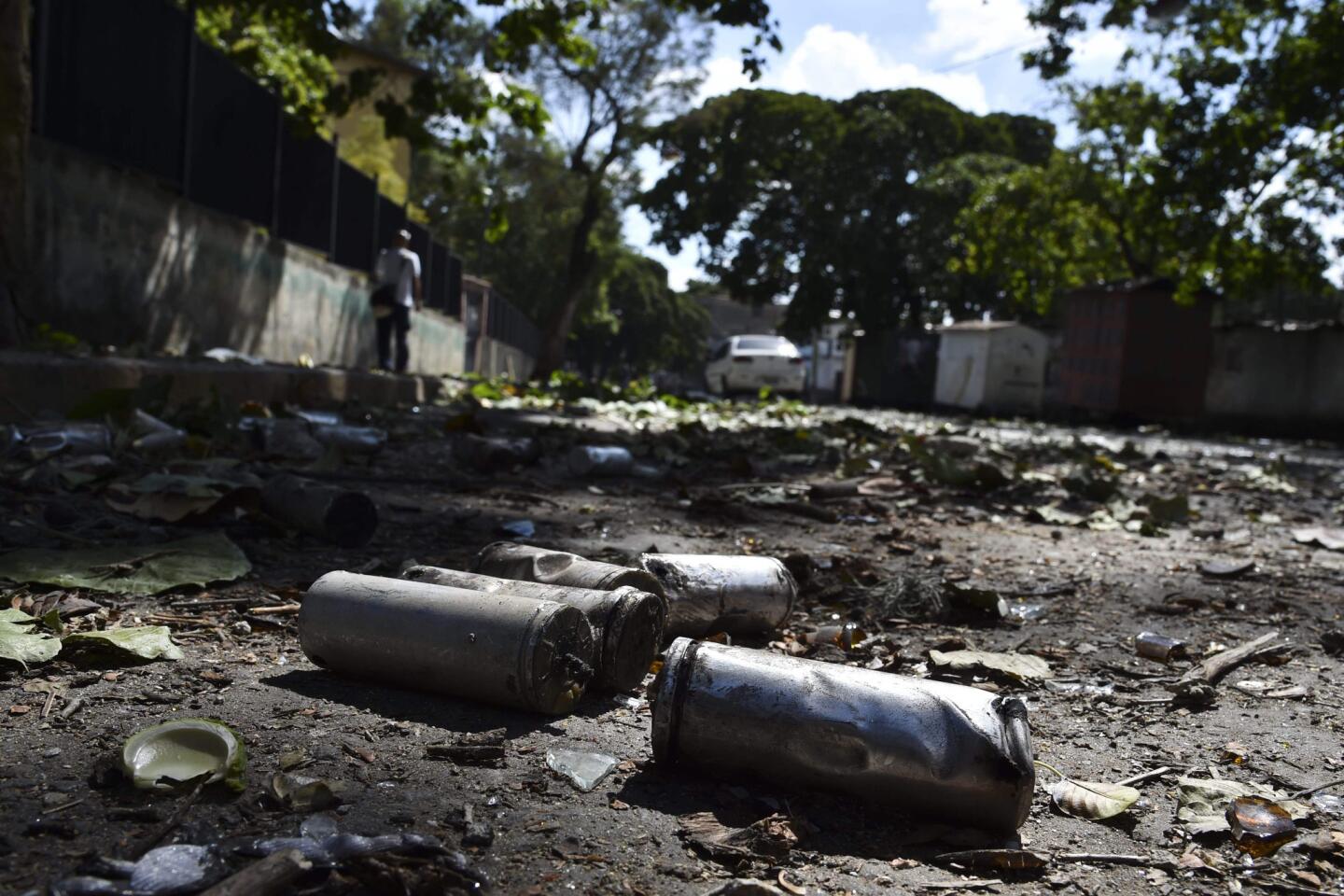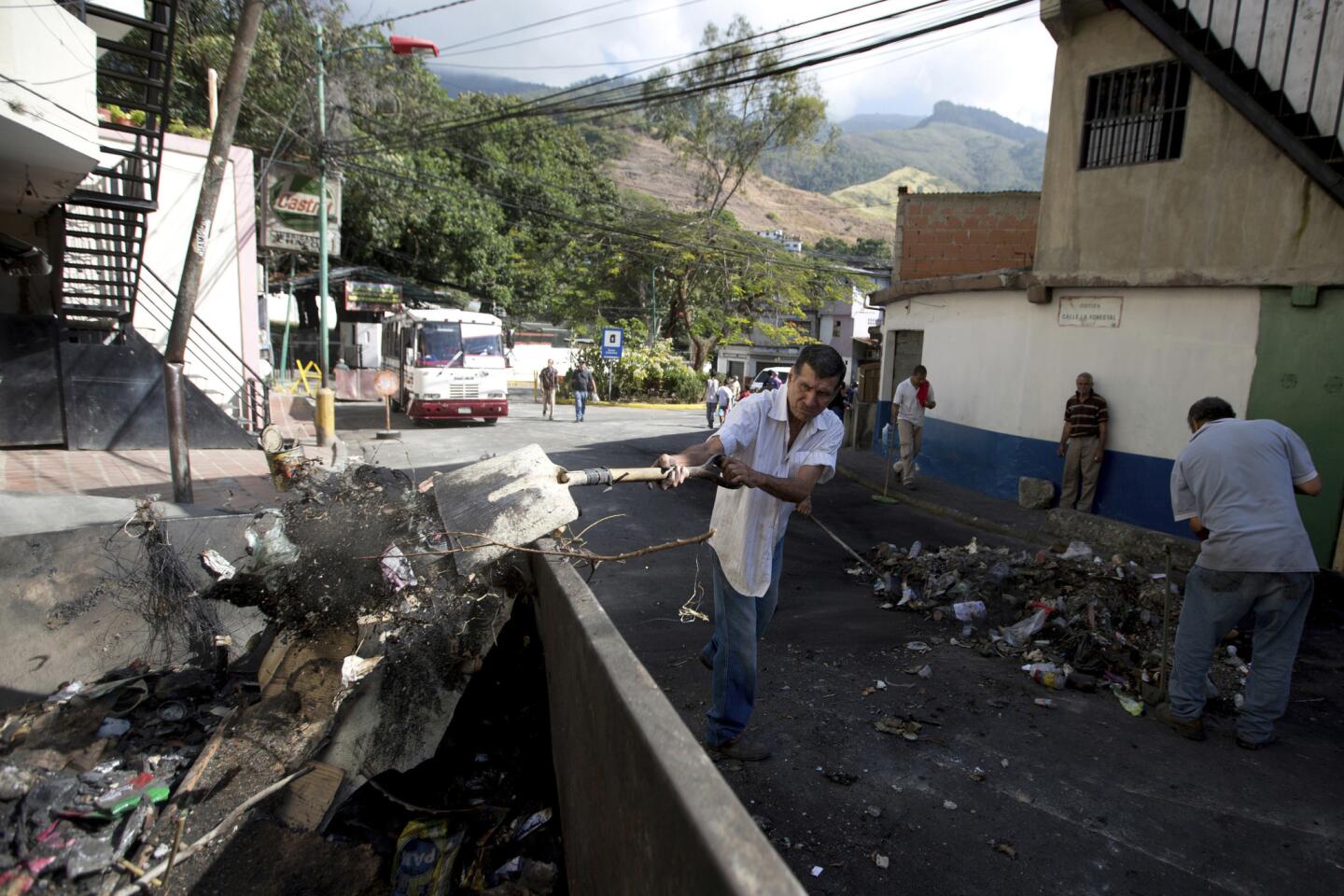‘We are not afraid’: Protesters fill Venezuela’s streets but Maduro remains defiant
Reporting from CARACAS, Venezuela — Scores of roving government loyalists on motorcycles swung by the hospital just before noon on Wednesday, a stark warning to protesters that their actions were under scrutiny.
Squads of shotgun-toting national police monitored events from beneath the trees across the street.
“We are not afraid!” chanted the demonstrators, including doctors and nurses in white smocks emerging from the grounds of Dr. Jose Manuel de los Rios Children’s Hospital on the edge of this capital’s frayed downtown.
Many demanded an infusion of humanitarian aid for a country where the once-vibrant health sector has been ravaged, leaving hospitals and clinics devoid of drugs, equipment and other necessities.
“We want an end to this situation in which we don’t have food, electricity, even water,” said Yadira Rosales, 57, a lab technician who was among those on the street outside the hospital. “We protest on behalf of the children and the elderly who don’t have access to medicines.”
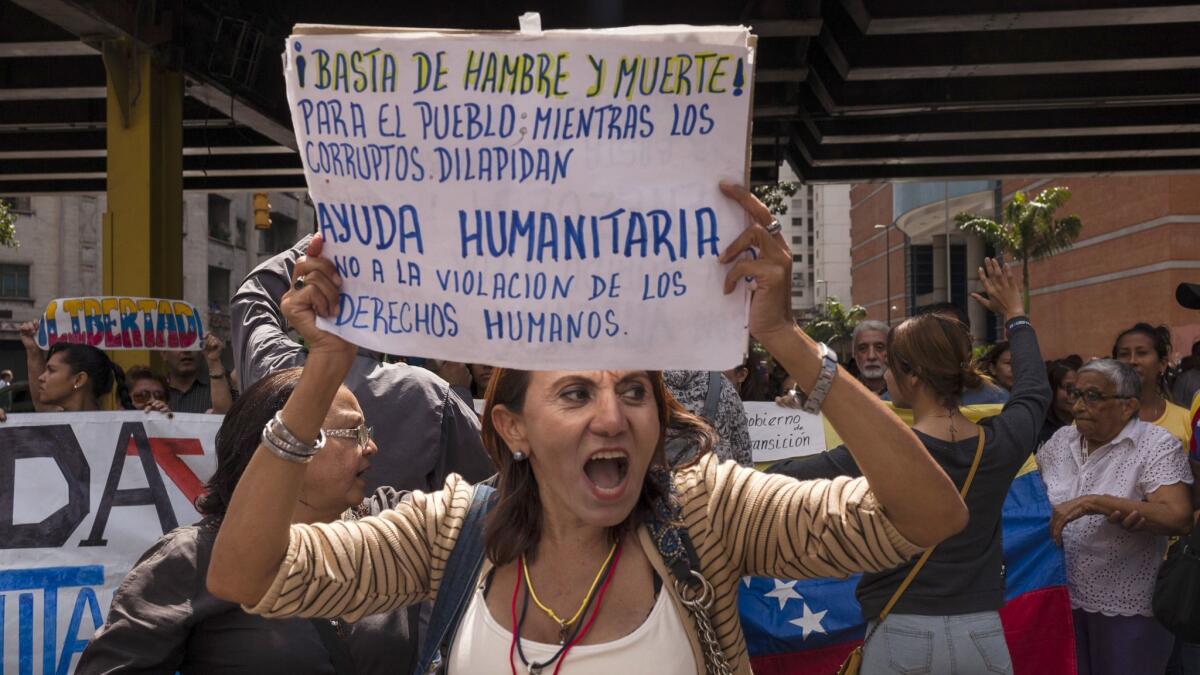
Thousands of people across Venezuela participated Wednesday in the latest series of anti-government protests, stepping outside of their homes, offices and other workplaces for two hours at midday. Health workers and patients were among many taking part in the diverse mobilization.
It was a low-key, mostly symbolic act in a country that has seen waves of anti-government protests in recent years that have left scores dead and thousands injured.
Venezuela is now perched on a new moment of uncertainty — hopes and fears stirred in a deeply divided population numbed from years of hyperinflation, food shortages and millions fleeing the country. Tension here appears to be increasing by the day, as international pressure is mounting as never before on the embattled government of President Nicolas Maduro.
“Yes, of course I am afraid,” said Josefina Perez, 50, an accountant who was among a cluster of office workers who left their buildings near downtown to voice their discontent with Maduro. “But I also have hope…. I want this corrupt government to go.”
The already chaotic political and social landscape was upended last week when a little-known legislator named Juan Guaido declared himself the beleaguered country’s “interim president,” mounting the most direct challenge yet to the Maduro administration.
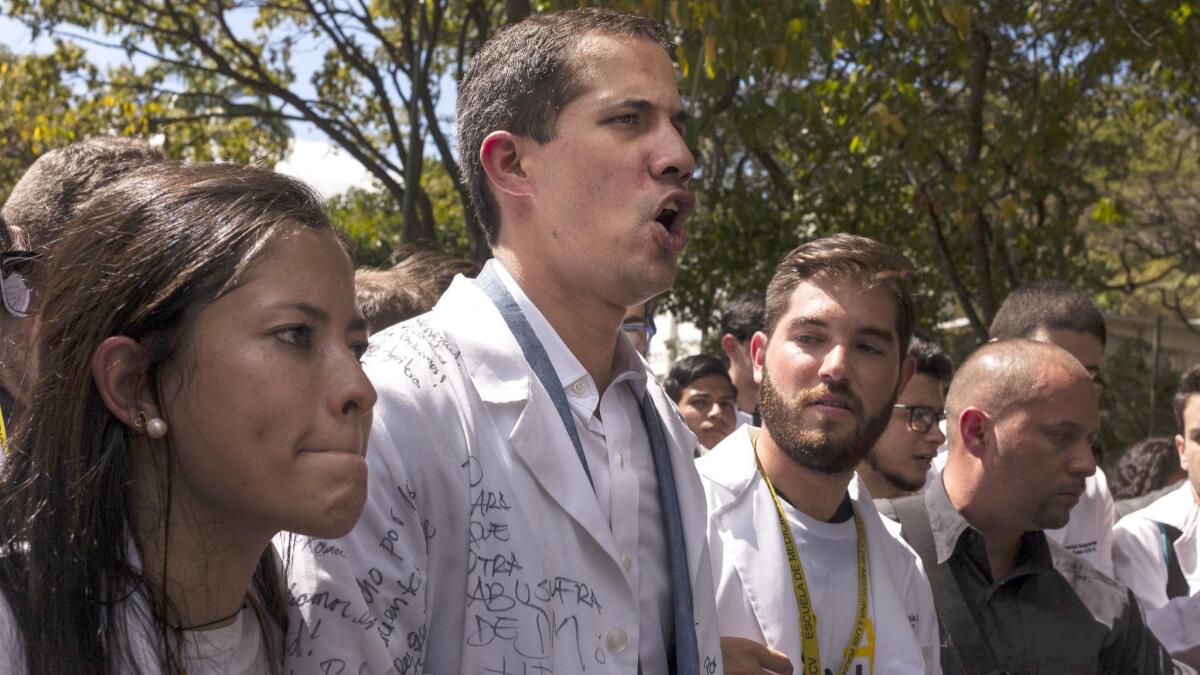
Since then, some two dozen countries, led by the United States, have recognized Guaido as the country’s interim president — while Maduro has declared the move nothing less than a U.S.-orchestrated “coup” designed to pilfer the energy riches of a country that has the world’s largest known petroleum reserves, along with abundant other natural resources.
Maduro calls his landslide election last year legitimate — disputing opposition and U.S. charges of blatant fraud — and says he has no intention of calling for a new round of balloting before 2025, when the next regular presidential elections are scheduled.
Rumors of a possible U.S. attack or even an invasion have spread as John Bolton, President Trump’s hawkish national security advisor, threatened “serious consequences” on Tuesday should the Venezuelan government “attempt to subvert democracy and harm Guaido.”
That seemed an explicit guarantee of U.S. protection for the self-declared president, who is being investigated by Maduro for anti-government activities and could face arrest. Guaido has been banned from leaving the country.
On Wednesday, Trump telephoned the Venezuelan opposition leader “to congratulate him on his historic assumption of the presidency,” said White House spokeswoman Sarah Huckabee Sanders, who referred to Maduro as the country’s “former dictator.”
The Trump administration has focused unusual energy on the Venezuela crisis and appears determined to see Maduro unseated. Elliott Abrams, a hawkish veteran of Reagan and Bush administrations who was put in charge of the administration’s Venezuela effort, told reporters at the State Department on Wednesday that the long-fractured Venezuelan opposition is more united than in the past.
“That’s a big achievement,” Abrams said.
Also Wednesday, Maduro charged that a group of Venezuelan army deserters were planning a “coup d’etat” from neighboring Colombia.
Earlier, Maduro appealed to U.S. citizens to “reject the meddling of the government of Donald Trump that seeks to transform my country into a Vietnam in Latin America…. It will not be permitted!”
The opposition has called for a mass mobilization Saturday, echoing its demand for a transitional government and new elections.
What will happen next in this South American nation of 32 million remains a mystery.
Despite the ongoing opposition protests, Maduro still maintains a core of support — including significant numbers of government employees and many who have benefited with housing and other aid from his government and that of his predecessor, the late Hugo Chavez, whose image adorns billboards, walls and buildings here.
One police officer monitoring the hospital protests told reporters: “We will defend until death the legacy of our Commander Chavez.”
Security was tight throughout the capital, though traffic remained heavy in a country where gasoline is practically free — filling a tank costs the equivalent of U.S. pennies.
Army troops huddled behind sand-bagged barriers that shut off vehicle traffic near the Miraflores presidential palace, where Maduro is hunkered down. Nearby, a group of government loyalists — many wearing red shirts denoting fealty to the government — gathered to counter the opposition protests.
“We would never accept” an invasion, declared Morelia Marquez, 48, a teacher who was among the pro-government activists gathered near the presidential palace. “But it could happen, and we are prepared to fight, to defend the country.”
Special correspondent Mogollon reported from Caracas and Times staff writer Wilkinson from Washington. Times staff writer Patrick J. McDonnell also contributed to this report.
More to Read
Sign up for Essential California
The most important California stories and recommendations in your inbox every morning.
You may occasionally receive promotional content from the Los Angeles Times.
